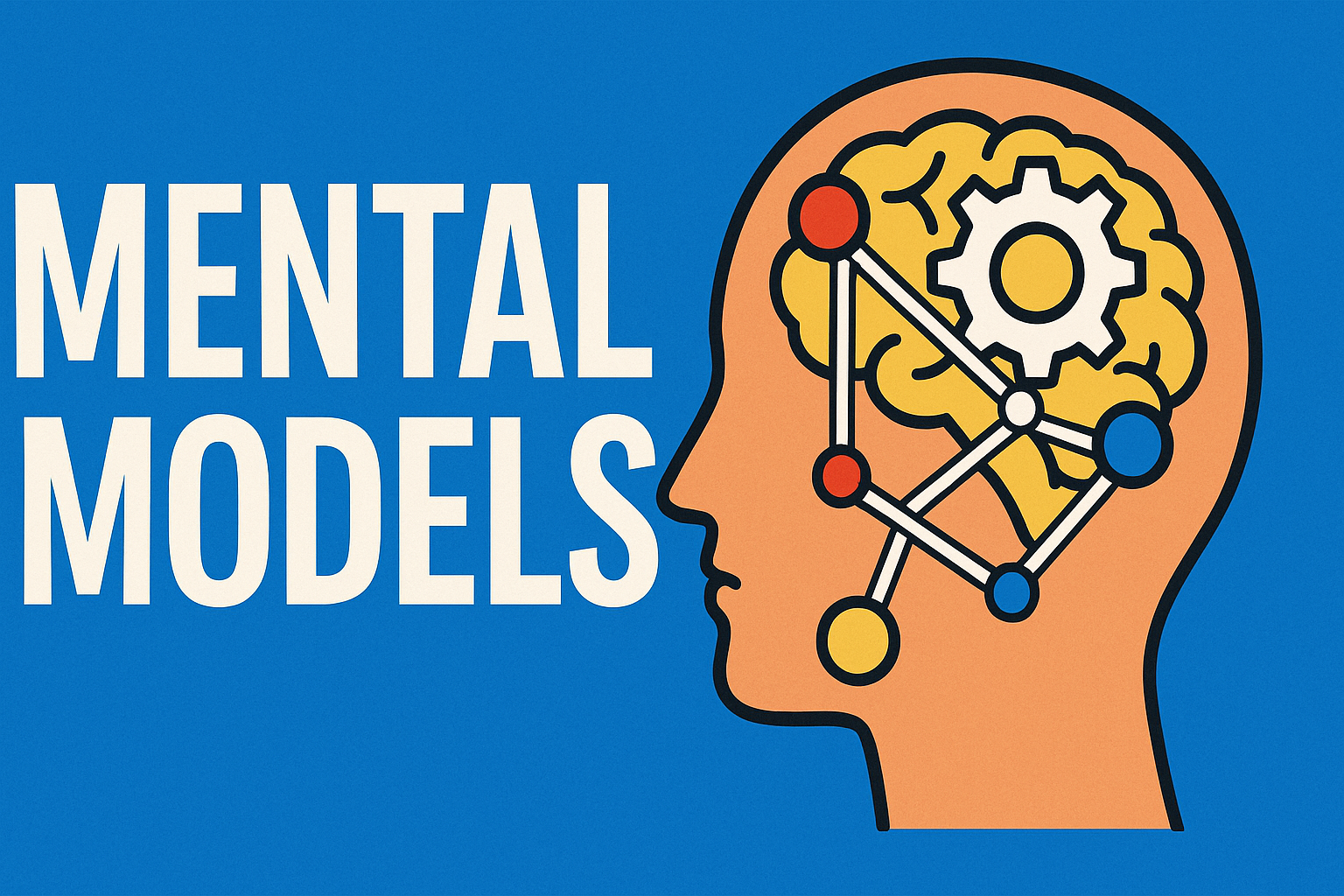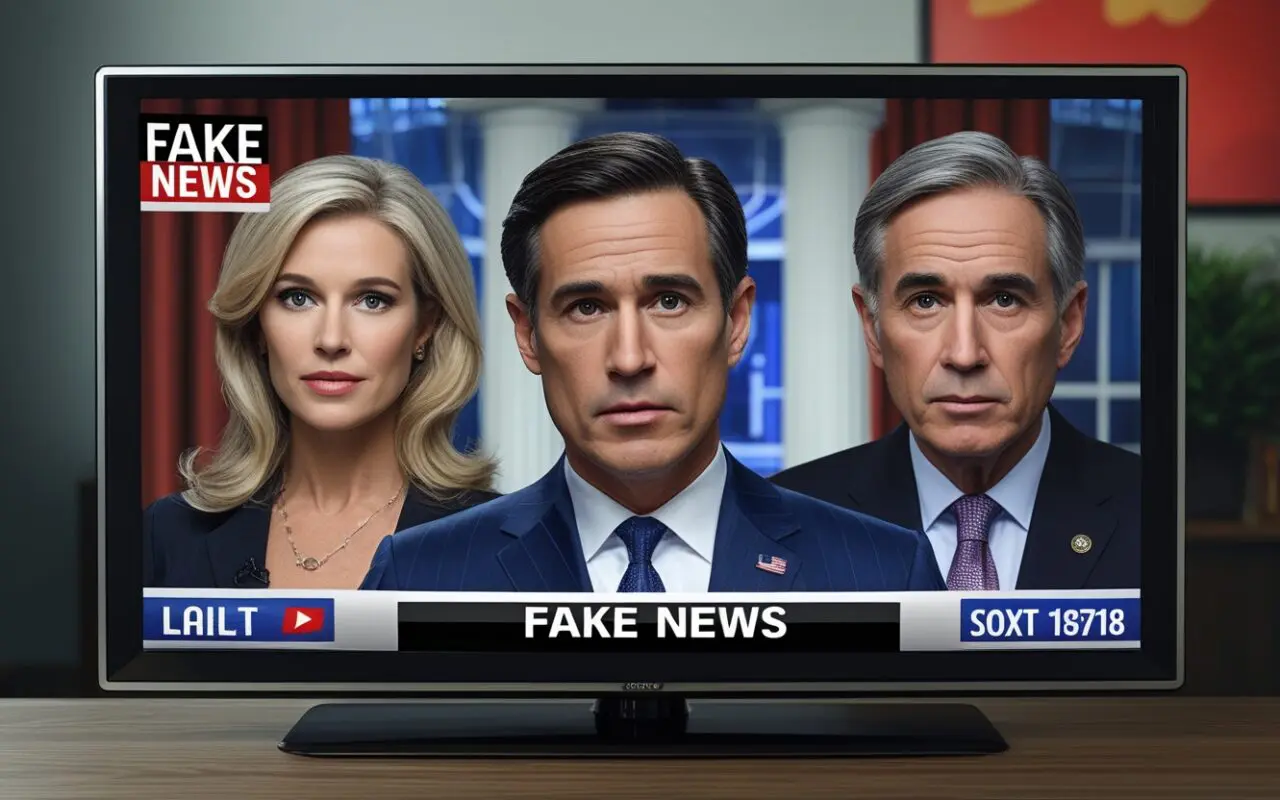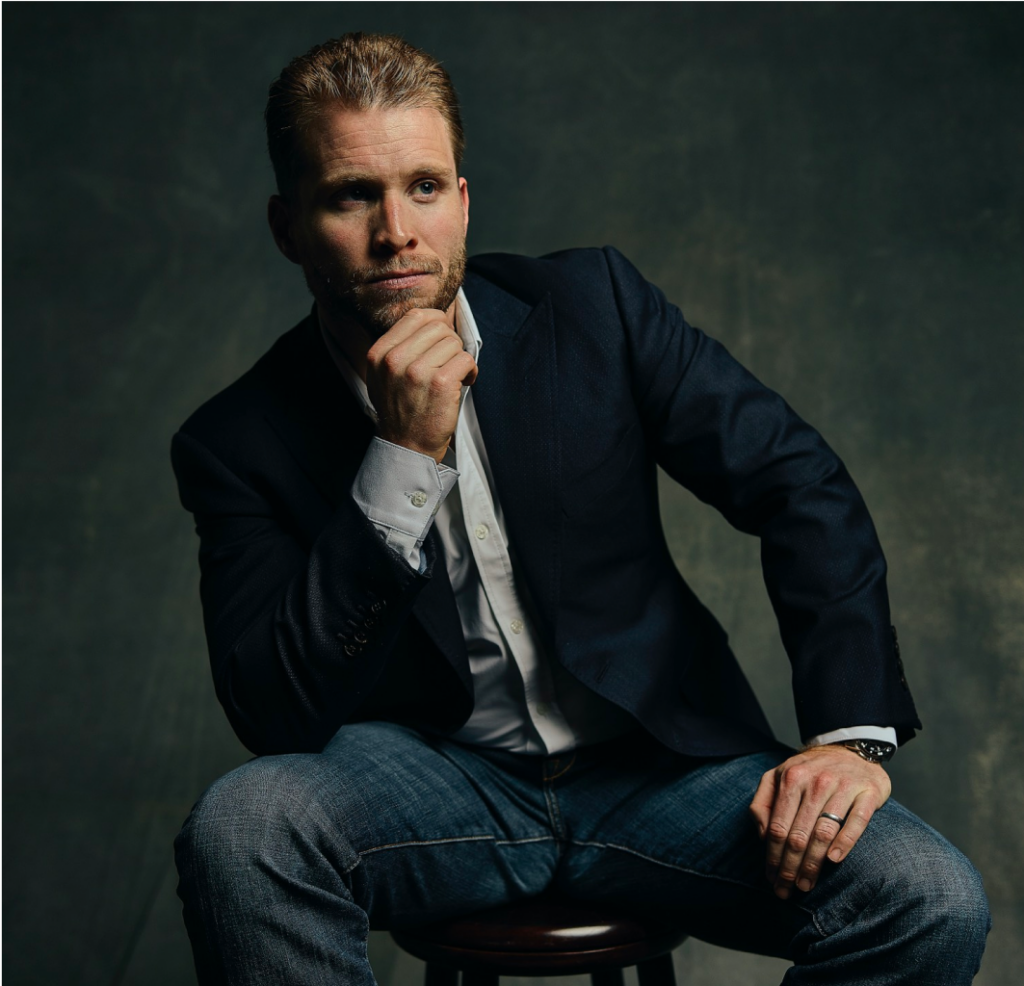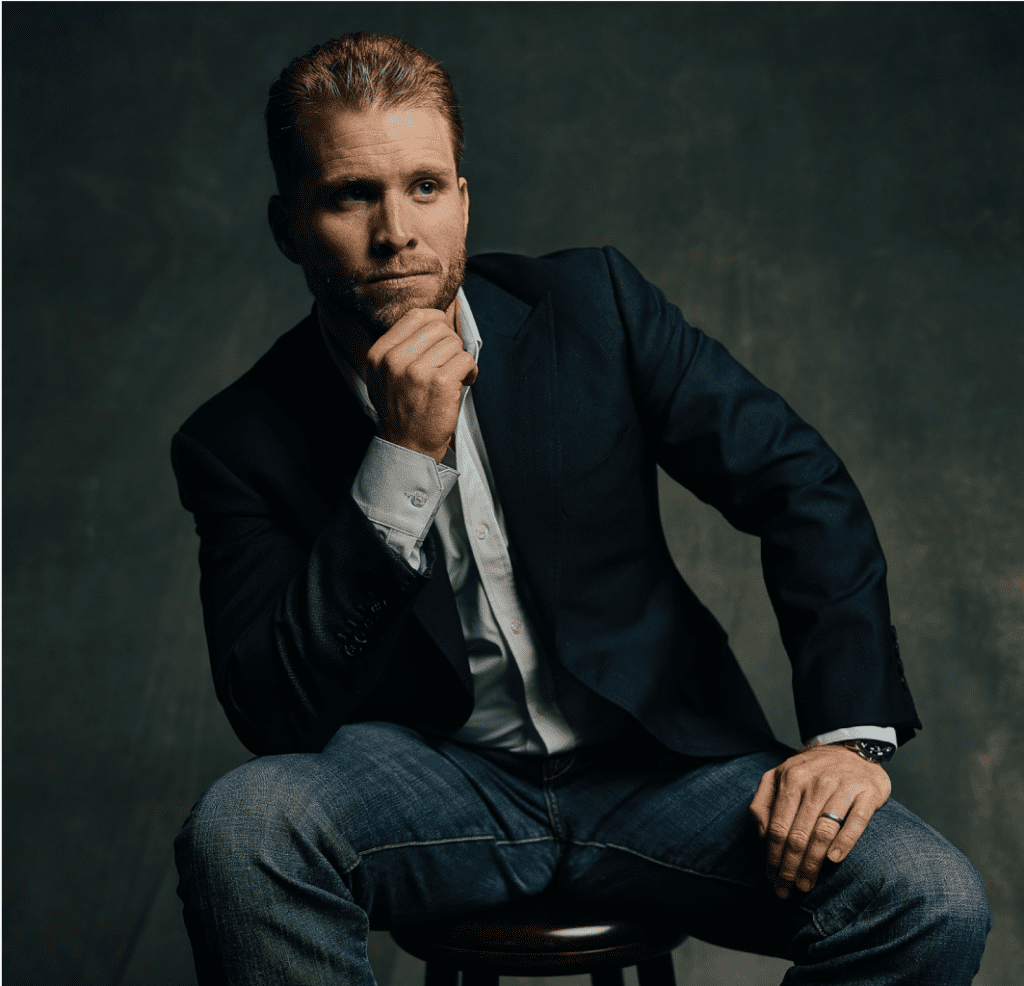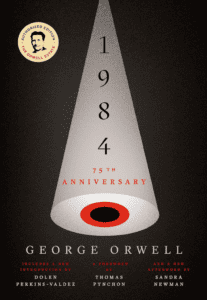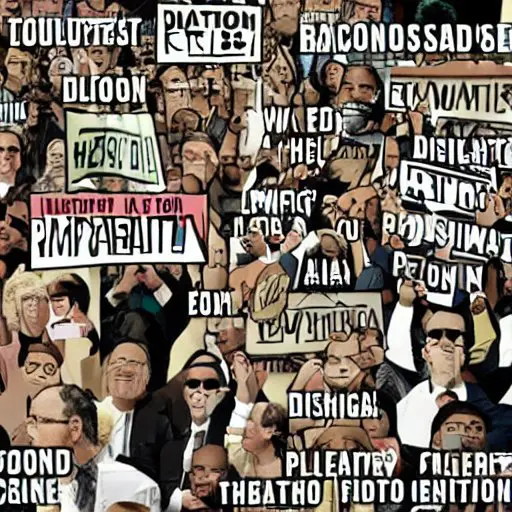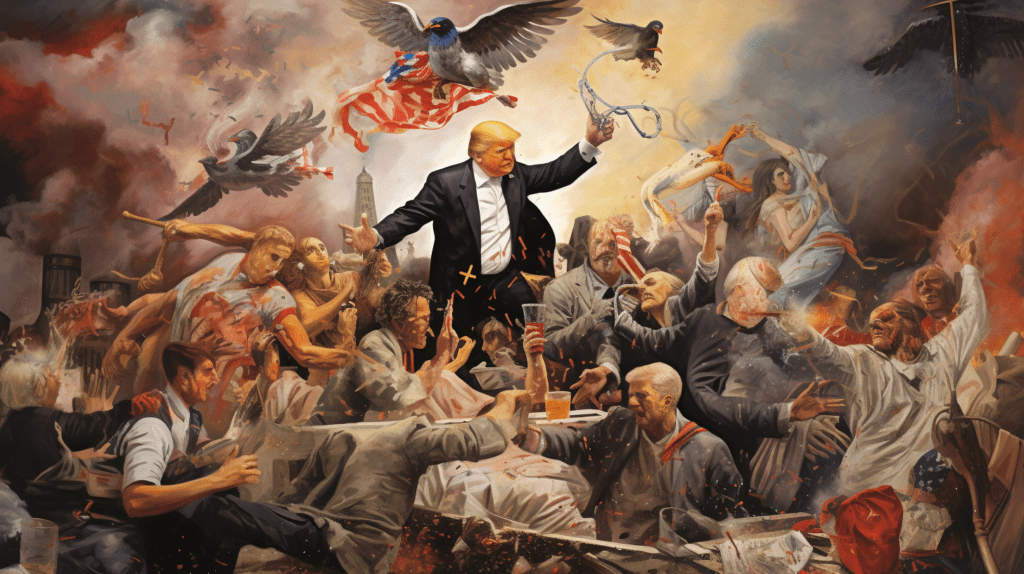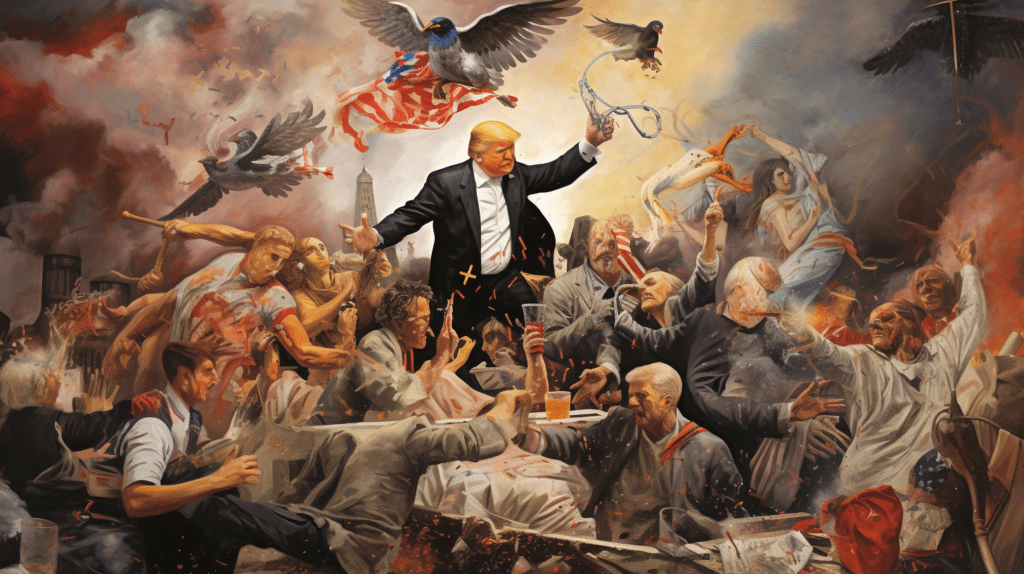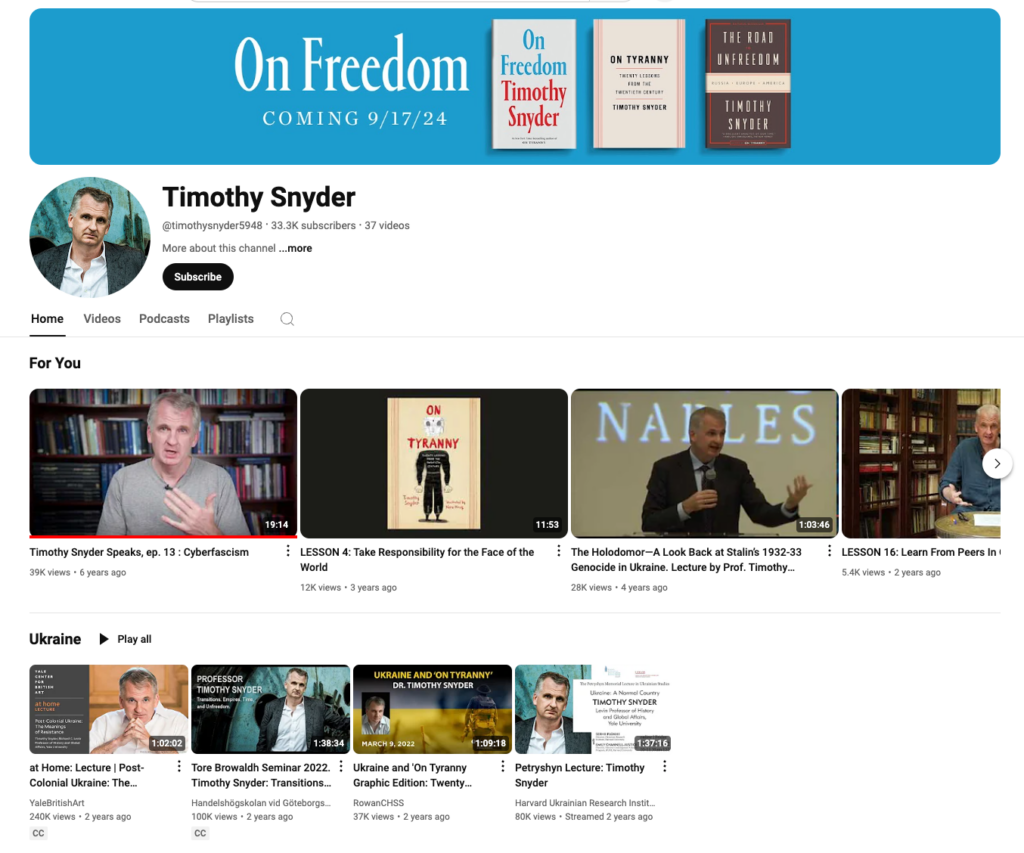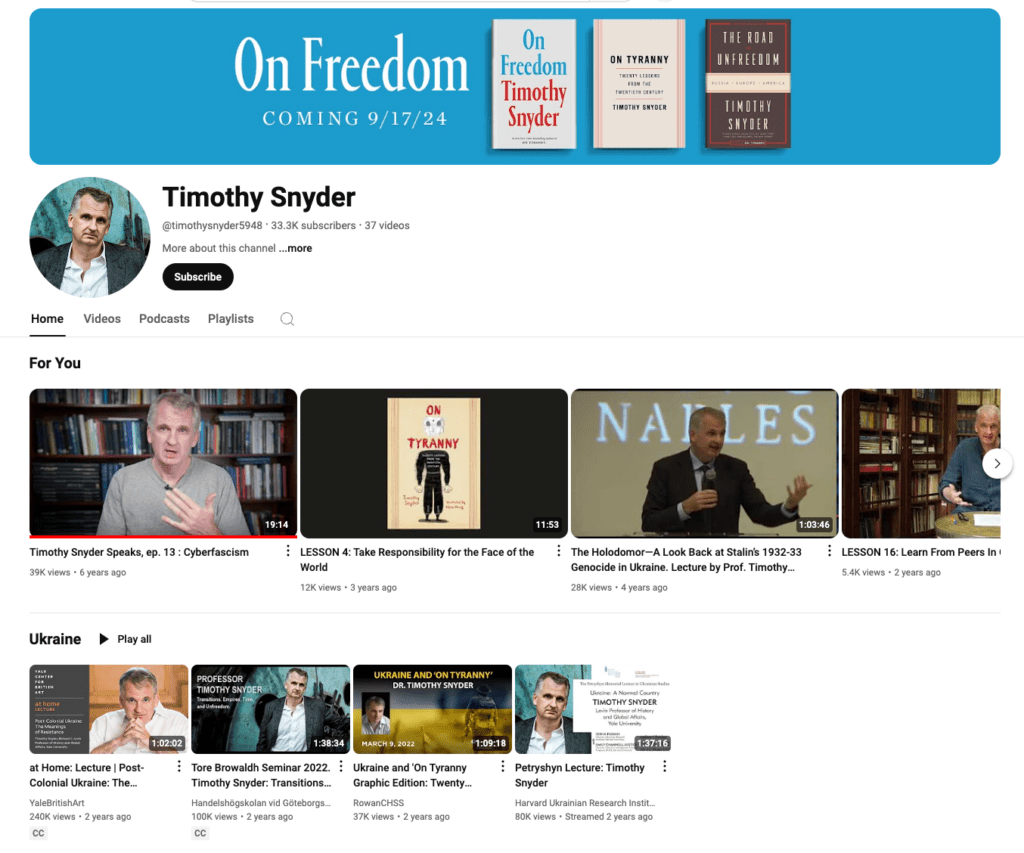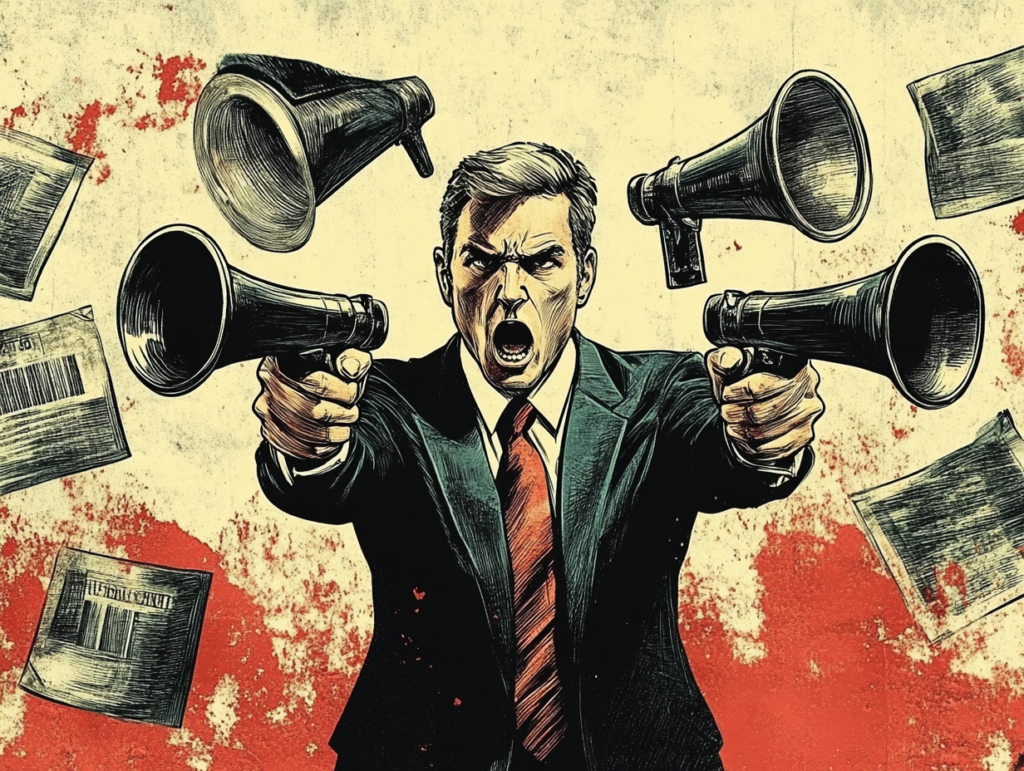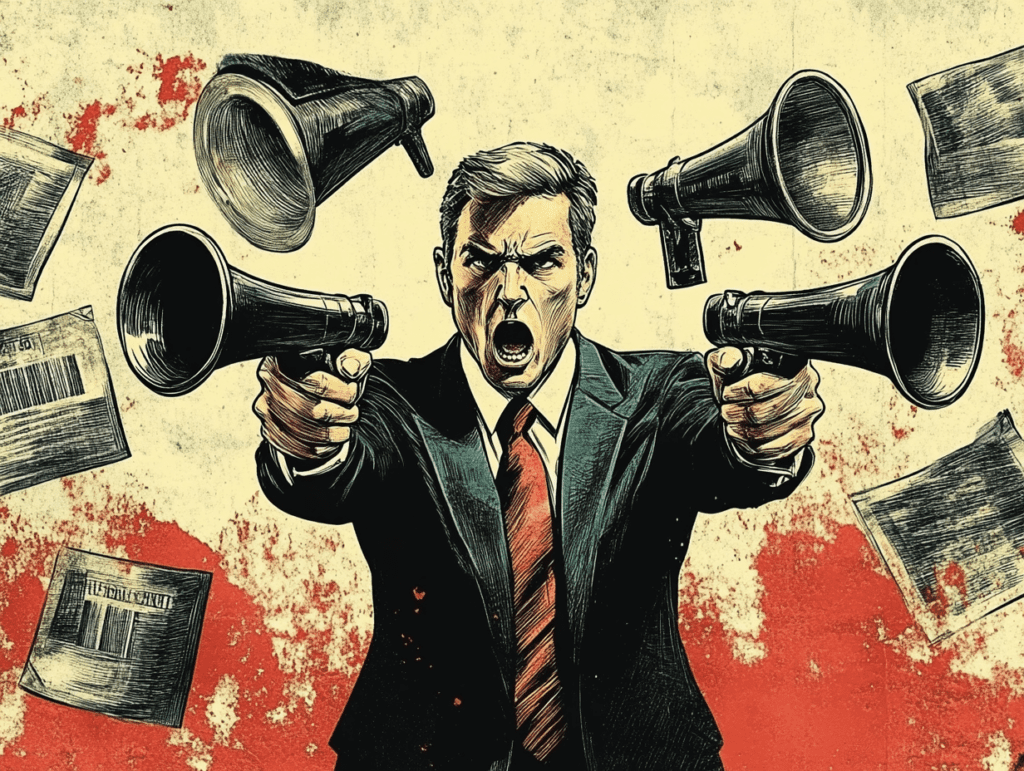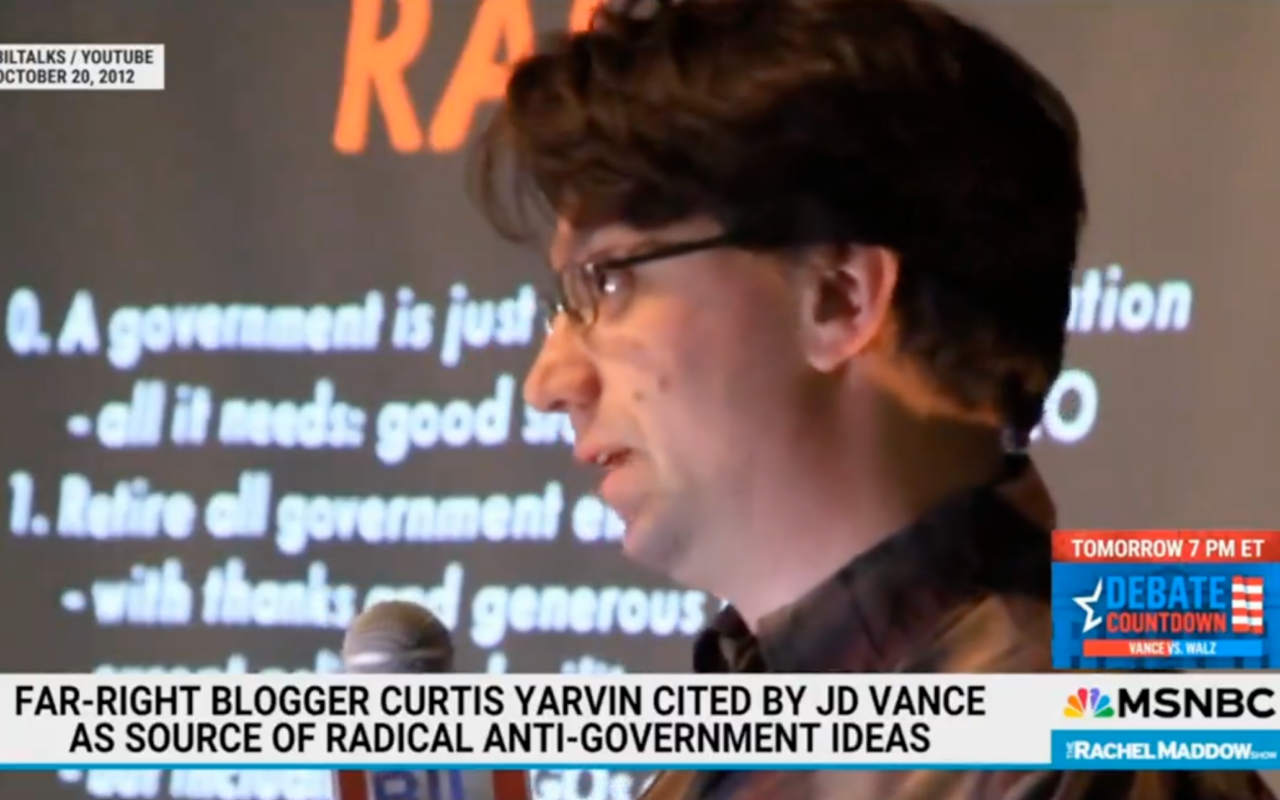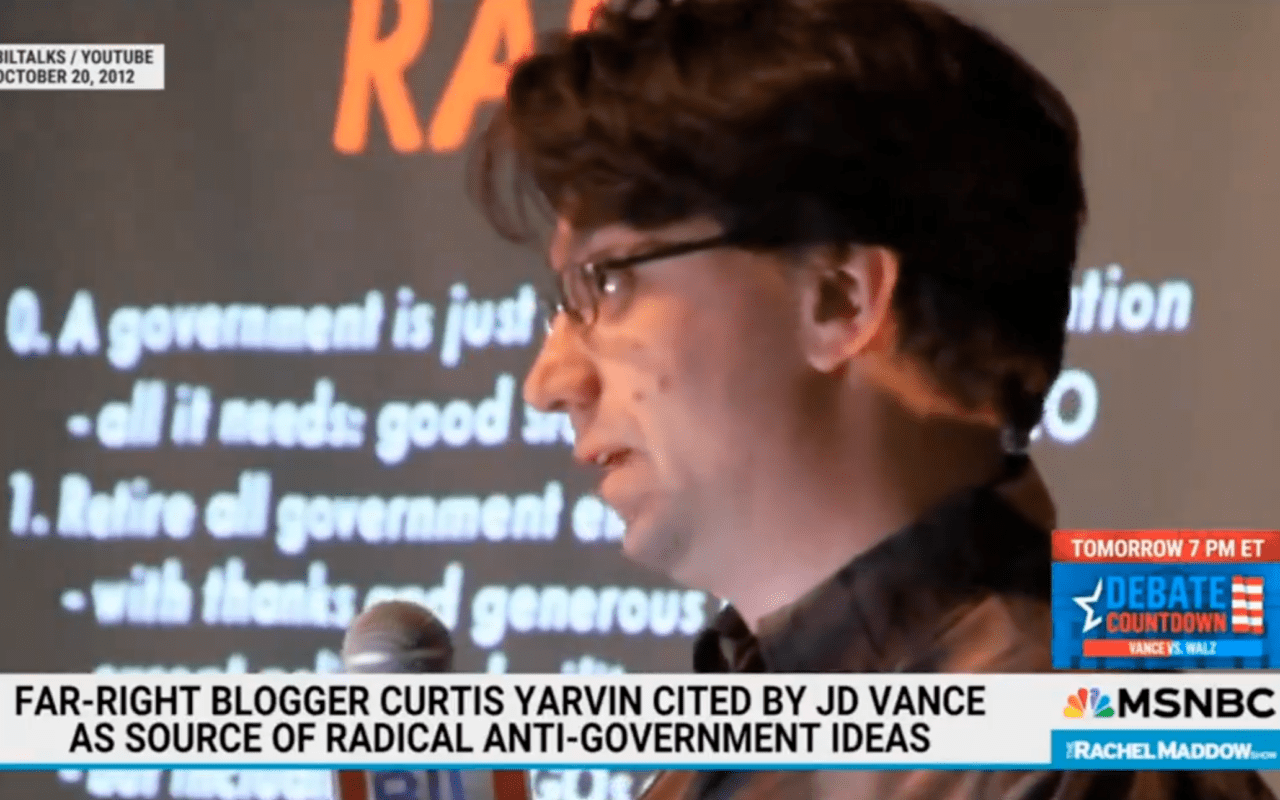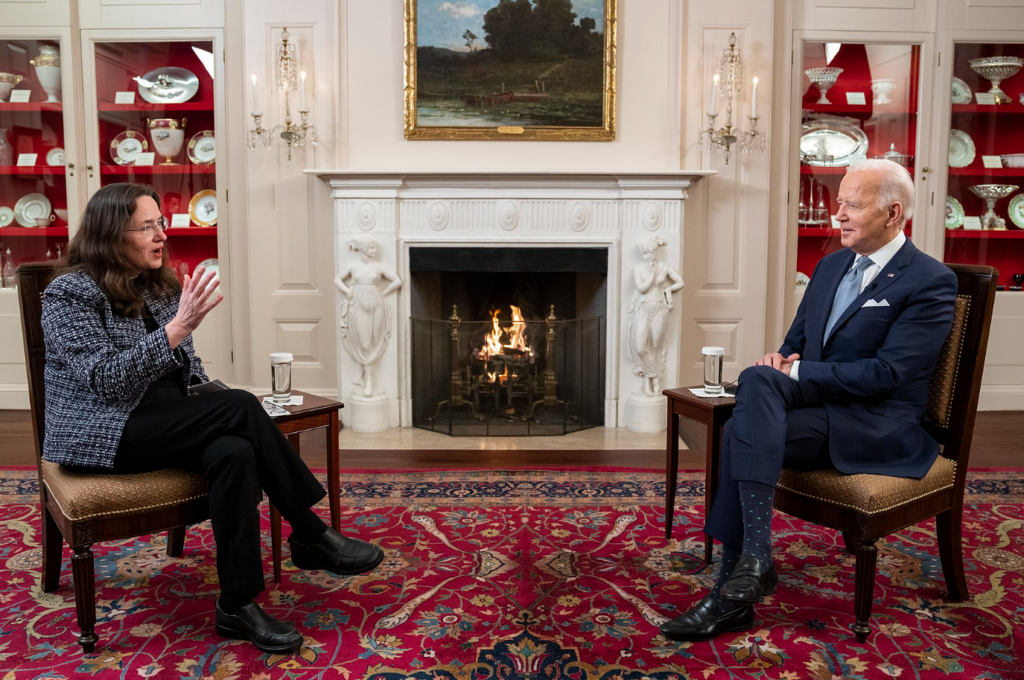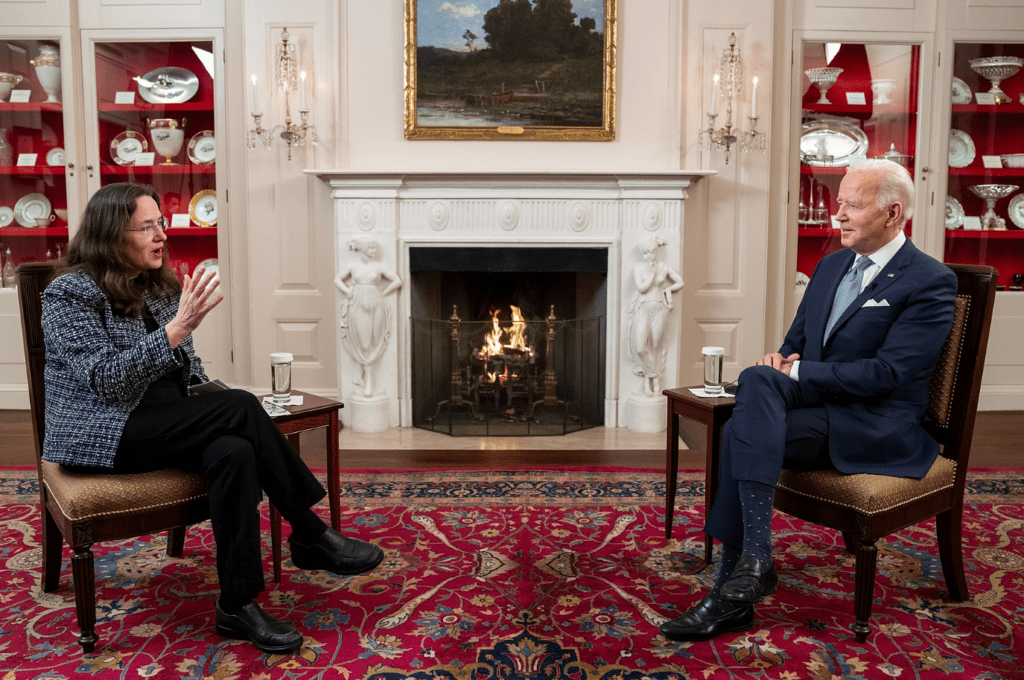Critical thinking is a disciplined process of actively and skillfully conceptualizing, applying, analyzing, synthesizing, and evaluating information gathered from, or generated by, observation, experience, reflection, reasoning, or communication, as a guide to belief and action. It involves questioning ideas and assumptions rather than accepting them at face value.
It requires curiosity, skepticism, and humility to acknowledge the limitations of one’s knowledge and understanding. Critical thinking enables individuals to make reasoned judgments that are logical and well-thought-out. It is a foundational skill for problem solving and decision making in a wide range of contexts, and it empowers individuals to act more wisely and responsibly in their personal, professional, and civic lives — as well as to better evaluate the claims of experts.
Think Better with Mental Models
Mental models are a key component of critical thinking. They are a kind of strategic building block we can use to make sense of the world around us.
Some are formal mathematical proofs, some are scientific theories, and along the other end of the continuum are models more akin to metaphors or ancient wisdoms that still hold true today — they’ve been time tested and still hold explanatory value in helping us understand new (and new to us) phenomena.
Legendary investor Charlie Munger referred to mental models as the secret sauce of successful decision-making. Mastering multiple of the below models “is the best thing you can do,” he once said.
Mental Models for Improving Your Critical Thinking
Models are often extensible, and can apply to other systems in addition to their systems of origin. In fact, the most powerful models seem to show up again and again, across different disciplines and in a wide variety of contexts. They’re a bit like a mental image of how something works, that helps us predict what will happen next or explain how something works to others.
Also, multiple models can often be applied to the same systems — in order to describe different parts of that system, or account for different contexts, use cases, or configurations of the same process. Mental models aren’t like multiple-choice tests, where only one answer is correct — typically, a set of different models may have value in giving us a sense of how something works or how an ecosystem behaves.
See here for the set of Top Models to start with.
Then, follow up with the unabridged and upcoming collection I will continuously update and curate over time:
- 4GW — 4Fourth Generation Warfare (4GW) refers to a form of conflict characterized by decentralized, non-state actors using unconventional tactics, such as guerrilla warfare, terrorism, and psychological operations, to undermine stronger traditional military forces. It often blurs the lines between combatants and civilians and emphasizes ideological, cultural, and media-based strategies to achieve political goals.
- Absolute value — In math, the distance of a number from zero on the number line, without considering the direction; it is always a non-negative number.
- Action bias — The tendency to prefer action over inaction, often driven by the emotional discomfort of feeling unproductive or the desire to appear decisive.
- Adjustment heuristic — A cognitive shortcut or bias where people estimate a value based on an initial starting point (anchor) and then make adjustments from that point to reach their final estimate, often leading to systematic errors in judgment.
- Agency capitalism — Alfred Rappaport’s agency capitalism theory, as outlined in “Creating Shareholder Value,” addresses the conflict between corporate managers (agents) and shareholders (principals) by advocating for the alignment of managerial incentives with shareholder interests. Rappaport emphasizes that the primary goal of a corporation should be to maximize shareholder value through strategic planning, effective capital allocation, and performance metrics like economic value added (EVA) rather than traditional accounting measures. By promoting strong corporate governance, transparent communication, and incentive-based compensation, Rappaport’s theory aims to mitigate the agency problem and ensure long-term value creation for shareholders.
- Agile vs. Waterfall — 2 distinct methodologies or philosophies of project and product management: agile is more iterative and collaborative, while waterfall is more sequential and linear in nature.
- Alchemy — The medieval progenitor of the science of chemistry, based on the misguided ambition of transforming matter — often specifically the transmuting of base metals into gold.
- Alternative Available Principle — The alternative available principle states that your negotiating power or pricing leverage depends entirely on how attractive your customer’s next-best option is—if they have a great alternative, you have weak leverage; if their alternatives are poor or nonexistent, you have strong leverage. Essentially, you can only capture value up to the point where switching to their best alternative becomes more appealing than continuing to deal with you.
- Ambiguity aversion — A preference for known risks over unknown risks.
- Analysis paralysis — The inability to make a decision because of over-thinking a problem, and becoming paralized by too much data and/or too many options to consider.
- Anarcho-capitalism — A political philosophy that claims governments are not needed, only private property rights.
- Anchoring effect — A cognitive bias where individuals rely too heavily on an initial piece of information (the “anchor”) when making decisions, even if it’s unrelated to the decision at hand.
- Anecdotal vs. statistical — Anecdotal evidence refers to personal stories or isolated examples that people often use to illustrate or support a point, whereas statistical evidence involves data and analysis from systematic research or studies, providing a broader, more generalizable understanding of a topic.
- Anocracy — A hybrid form of government blending democracy and dictatorship, in which some public participation is available, but not a full set of mechanisms for addressing civic grievances.
- Antifragility — Systems that benefit from fragility; achieves growth from volatility (Nassim Taleb).
- Arete — Excellence in moral virtue (ancient Greece).
- Arrow of time — The concept that time seems to flow in a single direction from the past to the future, characterized by the growth of entropy and the irreversible progression of physical processes.
- Arrow’s Theorem — Social-choice paradox showing the flaws of ranked voting systems.
- Arrested development — A stoppage of physical or psychological development, leading to an individual’s failure to achieve the milestones typically associated with a certain life stage, often due to psychological or environmental factors.
- Asch Experiments — Set of experiments showing that people can be social pressured into conforming a lot more easily and often than we might imagine.
- Askers vs. Guessers — Cultural metaphor sorting people into two buckets: Askers will simply ask for anything they like, expecting that sometimes the answer will be “No.” Guessers will rarely ask for something if they feel the answer might be No, and dislike being put in the position of saying No to an Asker.
- Asymptote — A curve that approaches the value of a line on a graph but never reaches it.
- Attention restoration theory — concept that nature replenishes our ability to concentrate and pay attention.
- Austrian School economics — An outdated school of economic thought that emphasizes the spontaneous organizing power of the price mechanism and holds that the complexity of subjective human choices makes mathematical modeling of the evolving market practically impossible.
- Authoritarian personality — A psychological concept describing individuals who exhibit a strong adherence to conformity, authority, and rigid structure, often leading to prejudice and an intolerance for ambiguity.
- Availability heuristic — A mental shortcut that relies on immediate examples that come to a person’s mind when evaluating a specific topic, concept, method, or decision, leading to a biased judgment based on recent information or personal experience.
- Avogadro’s Number — 6.022 X 10^23, the number of atoms or molecules in a mole, the base unit of measurement for an equivalent amount of a substance in chemistry.
- Banality of evil — The concept of the “banality of evil,” coined by philosopher Hannah Arendt, describes the phenomenon where ordinary individuals commit heinous acts without evil intent, often through a lack of critical thinking and a blind adherence to orders or norms. This idea emerged from Arendt’s observations during the trial of Adolf Eichmann, a Nazi bureaucrat who facilitated the Holocaust by following orders and bureaucratic processes without question.
- Banana republic — A banana republic is a politically unstable country with an economy dependent on the export of a single resource, often controlled by foreign corporations. This term typically implies corruption, exploitation, and a lack of democratic governance.
- Bandwagon effect — A psychological phenomenon where people adopt beliefs or behaviors simply because others are doing so, often driven by the desire to conform or fit in.
- Basic Goodness — Shambhala Buddhist concept of basic human worthiness in people of all faiths, colors, and varieties.
- Bayes’ Theorem — Bayes’ Theorem is a fundamental concept in probability theory that allows you to update the probability of a hypothesis as more evidence or information becomes available.
- Begging the question — A logical fallacy in which an argument’s premise assumes the truth of the conclusion instead of providing evidence for it. Essentially, the argument circles back on itself without proving anything, often rephrasing the conclusion as part of the proof.
- Bellwether — Metaphor taken from the practice of using a castrated sheep (a “wether”) outfitted with a bell, that indicates in which direction the herd is going to be travelling. A bellweather is said to be predictive of the trends to come.
- Bias — A systematic inclination or prejudice in favor of or against something, often leading to unfair or distorted judgments or decisions.
- Big Rocks First — A time-management concept that emphasizes prioritizing the most important tasks (the “big rocks”) before focusing on smaller, less critical tasks. By addressing the key priorities first, you ensure that what matters most gets accomplished, even when other minor tasks (the “pebbles” and “sand”) compete for attention.
- Bikeshedding — a tendency to devote a disproportionate amount of available time to the more trivial and inconsequential matters, while giving short shrift to the most important topics or activities (aka Parkinson’s law of triviality)
- Bin stacking problem — A combinatorial optimization problem where the goal is to efficiently pack a set of objects of varying sizes into a limited number of bins or containers, minimizing the number of bins used or maximizing space utilization. It is often encountered in logistics, manufacturing, and computer science.
- Black and white thinking — Black and white thinking, also known as dichotomous or polarized thinking, is a cognitive distortion where people perceive situations, events, or people in extremes, such as all good or all bad, without recognizing the complexities and nuances in between. This type of thinking can lead to rigid and overly simplistic views, often resulting in emotional distress and conflict in personal and professional relationships.
- Black Swan Theory — A framework by mathematical statistician Nassim Nicholas Taleb for understanding rare, unpredictable events that have a massive impact, often missed by conventional risk assessments due to their infrequency and the illusion of predictability.
- Blind spot — A cognitive bias where individuals fail to recognize their own flaws or limitations, often leading to missed risks or opportunities in decision-making.
- Blockchain — A decentralized digital ledger technology that records transactions across many computers securely, preventing retroactive tampering or fraud. The backbone of the cryptocurrency industry.
- Body mass index (BMI) — A measure of body fat based on a person’s weight in relation to their height, used as a general indicator of healthy body weight.
- Boiling frog syndrome — A metaphor for the inability to detect gradual changes in an environment or situation, which eventually leads to detrimental outcomes if left unchecked.
- Bounded economics — A concept rooted in bounded rationality, where economic decision-making is constrained by limitations in information, cognitive abilities, and time. Rather than making perfectly rational choices, individuals and organizations operate within these boundaries, often opting for satisfactory solutions rather than optimal ones (see also: satisficing).
- Bounded rationality — A concept that suggests individuals make decisions with limited information and cognitive resources, leading to suboptimal choices despite rational intent.
- Brainwashing — A process of coercive persuasion and undue influence where an individual’s beliefs, attitudes, or behaviors are manipulated through psychological or physical pressure.
- Bricolage — the creation of art or other creative work from a diverse range of materials and/or influences.
- Broken Windows Theory — A criminological theory that suggests visible signs of disorder and neglect, such as broken windows, can encourage further crime and anti-social behavior.
- Burden of proof — The obligation to provide sufficient evidence to support a claim, typically resting on the party that brings the argument or accusation.
- Busy work — Tasks that keep someone occupied but do not contribute meaningful value or progress toward important goals, often used to create the illusion of productivity.
- Butterfly effect — A concept from chaos theory that suggests small changes in initial conditions can lead to vastly different outcomes, highlighting the interconnectedness of complex systems.
- Bystander effect — A social psychological phenomenon where individuals are less likely to offer help in an emergency situation when others are present, often due to diffusion of responsibility.
- Calvinism — Ideology of a Christian sect known for their fastidious work habits.
- Campbell’s Law — The more any quantitative social indicator is used for social decision-making, the more subject it will be to corruption pressures, and the more apt it will be to distort and corrupt the social processes it’s intended to monitor. (see also: Goodhart’s Law)
- Casino capitalism — Casino capitalism refers to an economic system where high-risk financial activities, such as speculative investments and trading, dominate over productive investments in goods and services. This term critiques how financial markets operate like casinos, prioritizing short-term gains and speculative profits over long-term economic stability and growth.
- Catalyst — In a broad sense, a catalyst is something or someone that initiates or accelerates significant change or action without being consumed or altered in the process. In chemistry, it refers to a substance that speeds up a reaction without being used up itself. Similarly, in social or organizational contexts, a catalyst can be an event, person, or idea that sparks transformative progress or change.
- Categorical imperative — Immanuel Kant’s moral philosophy, stating that one should behave only in ways they would want to be universal (see also: Golden Rule; ideal universal principle)
- Cathexis — allocating one’s mental or emotional energy to a person, idea, or object, perhaps to an unhealthy degree psychologically.
- Causa-sui project — A term from existential psychology, particularly in the work of Ernest Becker, referring to an individual’s attempt to create meaning and purpose in life by becoming their own cause or creator. It reflects the desire for self-determination and immortality through personal achievements, values, or legacy, as a way to confront the fear of death and insignificance.
- Causation — The relationship between cause and effect, where one event (the cause) directly leads to another event (the effect). In this relationship, changes in the cause are responsible for producing changes in the effect, distinguishing it from mere correlation, where two events may happen together without one necessarily causing the other.
- Central Limit Theorem — mathematical proof showing that any large enough sample size of a population will exhibit a Normal Distribution Curve (aka Bell Curve) for any independently-measured traits.
- Central tendency — A statistical concept that refers to the measure used to determine the center of a data set or the typical value. Common measures of central tendency include the mean (average), median (middle value), and mode (most frequent value), each providing a way to summarize data by identifying its central point.
- Ceteris paribus — A Latin phrase meaning “all other things being equal.” It is used in economics and other fields to analyze the effect of one variable on another while assuming that all other relevant factors remain constant. This helps isolate the impact of a single change in a complex system, similar to the scientific method.
- Chaos Theory — A branch of mathematics and science that studies complex systems that are highly sensitive to initial conditions, where small changes can lead to vastly different outcomes. Often summarized by the “butterfly effect,” it highlights the unpredictability and non-linear behavior in dynamic systems like weather, ecosystems, or markets.
- Chekhov’s Gun — Literary principle stating that the details of a story should have purpose, and extraneous details omitted.
- Chesterton’s Fence — A principle that argues one should not remove or change an existing structure or system (the “fence”) without first understanding why it was put in place. It encourages caution in making changes, emphasizing the importance of understanding the original purpose before dismissing it as unnecessary.
- Clustering illusion — A cognitive bias where people perceive patterns or clusters in random data, believing that random events are actually related or follow a specific pattern, even when they do not. This bias often leads to overinterpreting coincidences or sequences in data as meaningful.
- Cocoon — Shambhala Buddhist conceptualization of a sort of psychic armor we wear that cuts us off from others in the name of self-protection. The discipline advises one to shed that armor.
- Cognitive extension — Cognitive extension refers to the idea that human cognitive processes can extend beyond the brain to include external tools and environments, such as technology and written language, which enhance and support our mental capabilities. This concept suggests that our minds are not confined within our heads but are instead part of a broader system involving interaction with our surroundings.
- Collective action — A coordinated effort by a group of individuals to achieve a common goal or address a shared issue, often requiring cooperation and collaboration. It plays a crucial role in social, political, and economic contexts, especially when individual actions alone are insufficient to effect meaningful change.
- Collective effervescence — sociological concept of Émile Durkheim to describe when a community or society comes together and bonds over the same thought, theme, message, or action.
- Collective hysteria — A psychological phenomenon where a group of people experiences shared irrational fear, panic, or exaggerated emotions, often spreading quickly through social contagion. This can result in mass panic or delusional beliefs, even in the absence of real danger or evidence, and is typically fueled by rumor, stress, or social dynamics. Also called “moral panic” (examples: the Salem Witch Trials; Satanic Panic of the 1980s).
- Collective narcissism — A belief held by members of a group that their group is superior and deserves special treatment, often accompanied by hypersensitivity to criticism or perceived threats. This inflated sense of group identity can lead to hostility toward outsiders and defensive, aggressive behavior to protect the group’s image. (example: white supremacy)
- Command responsibility — Command responsibility is a legal doctrine in military and international law that holds superiors accountable for crimes committed by their subordinates when they knew or should have known about the actions and failed to prevent or punish them. This principle aims to ensure accountability within the hierarchy of command and is crucial in prosecuting war crimes and crimes against humanity.
- Compound interest — The process by which interest is calculated on both the initial principal and the accumulated interest from previous periods. This results in exponential growth over time, as interest continues to be added to the total amount, making it a powerful concept in finance and investment.
- Condorcet Jury Theorem — mathematical proof showing that if each person on the jury gets it right more than 50% of the time, as numbers get larger the jury as a whole approaches 100% justice. Greatly inspired James Madison, Thomas Jefferson, and the Framers of the Constitution.
- Confidence game — Also known as a “con,” it is a deceptive scheme in which a person or group gains the trust of a victim to defraud them, typically by manipulating their emotions or exploiting their desire for gain. The success of the con relies on the victim’s misplaced confidence in the perpetrator.
- Confirmation bias — Confirmation bias is the tendency to search for, interpret, and remember information in a way that confirms one’s pre-existing beliefs or opinions. This cognitive bias leads individuals to favor information that supports their views while disregarding or undervaluing evidence that contradicts them. (see also: motivated reasoning)
- Conformity — Conformity is the act of aligning one’s beliefs, attitudes, or behaviors with those of a group or social norm, often due to the desire for acceptance or to avoid conflict. It can be driven by both explicit social pressure and internalized expectations of societal standards.
- Conservation of energy — A principle in physics stating that energy cannot be created or destroyed, only transformed from one form to another. The total energy in a closed system remains constant over time.
- Conservation of mass — A fundamental concept in chemistry that states mass in a closed system remains constant, regardless of the processes acting inside the system, as matter cannot be created nor destroyed.
- Conservation of momentum — A physics principle asserting that the total momentum of a closed system remains constant if no external forces act on it, meaning momentum is conserved during collisions or other interactions.
- Conspiracy theory — A belief or explanation suggesting that events or situations are the result of a covert, often sinister, group acting in secret (usually a global cabal), typically lacking substantial evidence and ignoring alternative explanations.
- Contagion heuristic — A cognitive shortcut where individuals believe that objects or people can transfer their essence or properties through physical or symbolic contact, often resulting in irrational fears or beliefs about contamination.
- Continued influence effect — The phenomenon in which misinformation continues to influence belief and reasoning even after it has been successfully debunked.
- Conway’s Game of Life — Conway’s Game of Life is a cellular automaton invented by mathematician John Conway in 1970. It consists of a grid of cells that can either be alive or dead, and the cells evolve in steps based on a set of simple rules related to their neighbors. These rules simulate the birth, death, or survival of cells and can lead to complex, unpredictable patterns, making it a famous example of how simple rules can produce emergent behavior and complexity.
- Correlation — A statistical measure that indicates the extent to which two variables move together. A positive correlation means they increase or decrease together, while a negative correlation means they move in opposite directions, but correlation does not imply causation.
- Corruption — The abuse of power or position for personal gain, often involving bribery, fraud, or unethical behavior, undermining trust in institutions or systems.
- Counterfactual thinking — The mental process of imagining alternative outcomes to events that have already occurred, often by asking “what if” questions to explore how different actions might have led to different results.
- Countervailing power — A concept in economics and politics where one group or institution balances the power of another, often to prevent monopolies or ensure fair competition and representation.
- Creative destruction — A term popularized by economist Joseph Schumpeter, referring to the process by which new innovations disrupt and replace outdated industries or technologies, fostering economic progress through continuous renewal.
- Crimes against humanity — Crimes against humanity are severe, widespread, and systematic acts committed against civilians, such as murder, enslavement, torture, and persecution, typically during times of war or conflict. These crimes are considered violations of international law and are prosecuted by bodies like the International Criminal Court (ICC).
- Critical mass — The minimum size or number of participants required for a particular action or event to take off and sustain itself, often used in social movements, markets, or nuclear physics.
- Critical Race Theory — An advanced academic framework that examines how laws and institutions perpetuate racial inequalities and explores the intersection of race, power, and society, often challenging dominant perspectives on race and justice.
- Crossing symmetry — in particle physics, the fact that any particle interaction observed can be anticipated to be replicable with that particle’s antiparticle.
- Crowdfunding — A method of raising small amounts of money from a large number of people, typically via the internet, to fund a project, business, or cause.
- Crowd psychology — The study of how individuals behave differently when they are part of a large group, often leading to irrational or emotional actions influenced by group dynamics rather than personal decision-making.
- Crowdsourcing — The practice of obtaining input, ideas, or services from a large, diverse group of people, usually via the internet, to solve problems or complete tasks more efficiently.
- Cryptocurrency — A digital or virtual form of currency that uses cryptography for secure transactions, operates on decentralized networks based on blockchain technology, and is typically not controlled by any central authority, such as a government or bank. Popular examples include Bitcoin and Ethereum.
- Cult of personality — A situation where a public figure, often a political leader, uses media, propaganda, or other methods to create an idealized, heroic, and worshipful image, fostering uncritical admiration and loyalty from the public.
- Current moment bias — A cognitive bias where people give disproportionate weight to immediate rewards or benefits, often at the expense of long-term gains or future consequences.
- Cybernetics — Cybernetics is an interdisciplinary field that studies systems, control, and communication in animals, machines, and organizations, focusing on how feedback loops and information flow regulate behavior and maintain stability in complex systems.
- Dark matter — Dark matter is an invisible form of matter that doesn’t interact with light or other electromagnetic radiation, but exerts gravitational effects on visible matter. Discovered by astronomer Vera Rubin, dark matter is thought to make up about 85% of the matter in the universe and is crucial for explaining galactic rotation curves and the large-scale structure of the cosmos.
- Dark Triad — A group of three personality traits—narcissism, Machiavellianism, and psychopathy—characterized by manipulative, self-centered, and exploitative behavior. Individuals exhibiting the Dark Triad traits often seek personal gain with little regard for others, showing tendencies toward deceit, grandiosity, and a lack of empathy.
- DARVO — DARVO stands for Deny, Attack, and Reverse Victim and Offender, a tactic commonly used by abusers when confronted with their behavior. First, they deny the wrongdoing, then attack the person who brought up the issue, and finally reverse the roles to portray themselves as the victim while casting the accuser as the offender. It’s often used in contexts of manipulation and gaslighting.
- Dead hand of the past — The idea that outdated rules, laws, or decisions continue to exert control over present situations, limiting progress or adaptation to new circumstances.
- Decision tree — A visual or analytical model used to map out decisions and their potential outcomes, helping to systematically analyze different paths and consequences in decision-making.
- Democratic socialism — A political ideology that combines democratic principles, such as free elections and civil liberties, with socialist economic policies that emphasize social ownership and equitable distribution of wealth and resources.
- Denial / denialism — The refusal to accept reality or established facts, often in the face of overwhelming evidence, typically due to psychological defense mechanisms or ideological reasons. Denialism specifically refers to the systematic rejection of consensus on controversial issues (e.g., climate change, evolution).
- Deontology — Deontology is a moral philosophy that emphasizes duty, rules, and obligations as the foundation of ethical behavior. It asserts that actions are morally right or wrong based on adherence to these principles, regardless of the outcomes.
- Derivatives — Derivatives are financial instruments whose value is derived from underlying assets, such as stocks, bonds, or commodities. They are often used for hedging risk or speculative purposes in markets.
- Despotism — Despotism refers to a form of government where a single authority wields absolute power, often ruling through oppression and without regard for the will of the people. This concentration of unchecked authority frequently leads to abuses of power and a lack of individual freedoms.
- Determinism — Determinism is the philosophical idea that all events, including human actions, are determined by prior causes in a cause-and-effect chain. According to this view, free will is an illusion, as everything is a consequence of preceding events and conditions.
- Devil you know — The phrase “devil you know” refers to the idea that a familiar problem or undesirable situation may be preferable to an unknown one. It suggests that people often choose to stick with a known difficulty rather than risk encountering something worse.
- Dichotomy of control — Stoic idea that we should divide the world into things under our control (intentions, efforts) vs. things not in our control (external rewards), and hew to the former vs. the latter for our self-esteem and happiness.
- Diminishing Marginal Utility (DMU) — Diminishing Marginal Utility is an economic principle stating that as a person consumes additional units of a good or service, the satisfaction (utility) gained from each additional unit decreases. In other words, the first unit of consumption provides more utility than the second, and the second more than the third, and so on.
- Discounting positives — Discounting positives is a cognitive bias where individuals downplay or dismiss positive events or attributes, often focusing on negative aspects instead. This can distort perceptions and lead to a pessimistic outlook, even when evidence of success or value is present.
- Disjunction fallacy — The disjunction fallacy occurs when people wrongly assume that the probability of a disjunction (two or more events happening) is less than the probability of one of the individual events, despite logical rules suggesting otherwise. This mistake in reasoning can skew judgments and decision-making.
- Distributions — In statistics, distributions refer to the way values or data points are spread out or arranged within a dataset. Common types of distributions include normal, skewed, and uniform, each describing different patterns of data behavior.
- Diversity — Diversity refers to the inclusion and representation of different perspectives, backgrounds, identities, or viewpoints within a group or system. It is often considered beneficial for fostering innovation, creativity, and broader understanding.
- Domain dependence — Domain dependence refers to the tendency for people’s reasoning or behavior to change depending on the context or “domain” of a problem, even if the underlying logic is the same. This can lead to inconsistencies in decision-making across different areas of life.
- Doublethink — Doublethink, a concept from George Orwell’s 1984, is the act of holding two contradictory beliefs simultaneously and accepting both as true. It reflects the capacity for cognitive dissonance in environments of intense ideological control or propaganda.
- Drake Equation — The Drake Equation is a probabilistic formula used to estimate the number of active, communicative extraterrestrial civilizations in the Milky Way galaxy. It considers factors such as the rate of star formation, the fraction of those stars with planetary systems, the number of planets that could support life, and the likelihood of life evolving into intelligent beings capable of communication.
- Dr. Fox Effect — The Dr. Fox effect refers to a phenomenon where an engaging and expressive presenter can make a lecture appear informative and satisfying, even if the content is nonsensical or lacking in substance. This effect highlights the power of delivery and presentation skills in shaping perceptions of credibility and knowledge.
- Dunbar Number — The Dunbar Number refers to the cognitive limit to the number of stable social relationships an individual can maintain, typically estimated at around 150 people.
- Dunning-Kruger Effect — The Dunning-Kruger Effect is a cognitive bias where individuals with low ability or knowledge in a particular area overestimate their competence, while highly skilled individuals may underestimate their relative expertise.
- Duverger’s Law — Duverger’s Law is a political theory that in first-past-the-post electoral systems, like the U.S., a two-party system is likely to emerge, as smaller parties struggle to gain representation.
- Easterlin Paradox — named for economist Richard Easterlin, who observed that rising material prosperity in countries doesn’t necessarily lead to greater levels of reported well-being.
- Echo chamber — An echo chamber is a situation in which people are exposed only to information, opinions, or beliefs that reinforce their own views, often amplifying confirmation bias and limiting exposure to differing perspectives.
- Edge of chaos — at the border between order and disorder; a frontier of transition space. A concept from complexity theory describing a transitional space between order and disorder, where systems exhibit the most adaptability and potential for innovation.
- Efficiency — Efficiency refers to the optimal use of resources to achieve the desired outcome with minimal waste, energy, or time.
- Electromagnetic spectrum — The Electromagnetic Spectrum is the range of all types of electromagnetic radiation, from low-frequency radio waves to high-frequency gamma rays, including visible light, microwaves, and X-rays.
- Electron cloud — An electron cloud refers to the probabilistic distribution of where an electron is likely to be found around an atom’s nucleus, based on quantum mechanics, rather than a fixed orbit.
- Elephant and rider — The Elephant and Rider metaphor describes the relationship between the emotional (elephant) and rational (rider) parts of the human mind, suggesting that emotional impulses often dominate but can be guided by rational thought.
- Ellsberg paradox — The Ellsberg Paradox highlights people’s preference for known risks over unknown risks, even when the known risk may have a lower expected value, challenging the predictions of traditional economic decision theory.
- Elsewhere Disease — being convinced that the Real Story is not Here: Here is too boring by far. It’s small and provincial and known already (or so we believe). Excitement is for somewhere far away and exotic.
- Emotional abuse — Emotional abuse is a form of psychological manipulation where one person uses words, actions, or behavior to control, demean, or intimidate another, leading to emotional harm and a loss of self-worth in the victim.
- Emotional intelligence — Emotional intelligence is the ability to recognize, understand, manage, and influence one’s own emotions as well as the emotions of others, fostering better interpersonal relationships and decision-making.
- Emotional labor — Sociologist Arlie Russell Hochschild introduced the concept of emotional labor in her seminal book “The Managed Heart: Commercialization of Human Feeling” (1983). Emotional labor refers to the process by which workers manage their emotions to fulfill the emotional requirements of their job. This concept has had a profound impact on understanding the roles and challenges faced by workers in service-oriented industries.
- Emotional reasoning — Emotional reasoning is a cognitive distortion where individuals assume that their emotional reactions reflect objective reality, often leading them to believe that feelings of fear, guilt, or inadequacy are factual, rather than subjective experiences.
- Emperor’s new clothes — The phrase “Emperor’s new clothes” comes from a Hans Christian Andersen story and refers to a situation where people are afraid to speak the truth about something, often for fear of seeming foolish, even when it is plainly obvious that something is wrong or false.
- End Times — End Times refer to eschatological beliefs about the final events of the world or human history, often associated with apocalyptic or religious prophecies regarding the destruction of the world and the ultimate judgment.
- Entropy — Entropy, in thermodynamics, is a measure of disorder or randomness in a system, where systems tend to move from order to disorder over time. In information theory, it represents the unpredictability or uncertainty of information content.
- Epistemic warfare — Epistemic warfare involves the deliberate manipulation or disruption of knowledge, truth, and belief systems, often through disinformation or propaganda, to control public perception and weaken opponents’ ability to make informed decisions.
- E pluribus unum — one out of many, a Latin phrase used on the United States dollar to represent the founding ideals of Thomas Jefferson masterfully explained in the Declaration of Independence, that all men are created equal.
- Equality under law — Equality under law is the principle that all individuals, regardless of their status, race, gender, or other characteristics, are subject to the same legal codes and entitled to equal protection and treatment by the legal system. It ensures that no one is above the law and that justice is applied uniformly.
- Equilibrium — Equilibrium refers to a state of balance in a system where opposing forces or influences are equal, resulting in no net change. In economics, it describes a condition where market supply and demand are balanced; in physics, it denotes a situation where all acting forces cancel each other out.
- Equity — Equity involves fairness and justice in the way people are treated, striving to provide equal opportunities and address imbalances. In finance, equity represents ownership interest in a company or asset after liabilities are accounted for, such as shareholder equity.
- Eschaton — The eschaton refers to the end of the world or the final event in the divine plan, often associated with ultimate judgment or the arrival of a new era in religious eschatology. In theology, it marks the culmination of history, where cosmic or spiritual events bring about the fulfillment of prophecy.
- Estate tax — An estate tax is a levy imposed on the net value of a deceased person’s assets before distribution to their heirs. It is typically applied by governments on wealth transfers that exceed a certain exemption threshold at the time of death.
- Eternal Rome — “Eternal Rome” refers to the enduring legacy and historical significance of Rome as a city and former empire, symbolizing its lasting impact on culture, law, architecture, and governance throughout Western civilization. The term highlights Rome’s influence that persists across centuries.
- Ethics — Ethics is the branch of philosophy that deals with moral principles, guiding what is right and wrong behavior. The term originates from the Greek word “ethikos,” meaning character, and is closely related to the Latin “moralis,” meaning customs or habits.
- Eucatastrophe — Eucatastrophe is a term coined by author J.R.R. Tolkien to describe a sudden and favorable turn of events in a story, leading from impending disaster to a happy ending. It represents a dramatic reversal where a catastrophe unexpectedly resolves positively.
- Event horizon — An event horizon is the boundary surrounding a black hole beyond which nothing can escape, not even light, due to the immense gravitational pull. It marks the point of no return in spacetime, separating observable events from those that cannot affect an outside observer.
- Exception handling — Exception handling refers to the process of responding to and managing unexpected or anomalous events that disrupt normal operations in computing or organizational processes. It involves identifying, addressing, and resolving edge cases or novel issues to maintain functionality.
- Expected value — Expected value is a statistical concept that calculates the average outcome of a random variable over numerous trials, weighted by their probabilities. It provides a measure of the central tendency, helping to predict long-term results in probabilistic situations.
- Extrapolation — Extrapolation is the method of estimating unknown values by extending or projecting from known data points beyond the established range. It assumes that existing patterns or trends will continue, allowing predictions in new or future contexts.
- Extremism — Extremism refers to holding radical views or beliefs that are far outside the accepted norms of society, often advocating drastic political, religious, or social changes. Such views can lead to actions that challenge or undermine established systems and may pose risks to societal stability.
- Fact-Value Problem — Arose from philosopher David Hume (1711-1776) and the is-ought problem in moral philosophy. It refers to the challenge of distinguishing between descriptive statements (what is) and prescriptive or normative statements (what ought to be) in philosophical discourse. It highlights the difficulty in deriving ethical or moral conclusions directly from factual premises. (see also: naturalistic fallacy, moralistic fallacy)
- False cause — False cause is a logical fallacy where someone mistakenly assumes that because one event follows another, the first event caused the second, without properly establishing a causal link between them. This is also known as post hoc ergo propter hoc.
- False consensus effect — The false consensus effect is a cognitive bias where individuals overestimate the extent to which their beliefs, values, or behaviors are shared by others, assuming that most people think or act the same way they do.
- False flag — A false flag is a deceptive act where a person, group, or state carries out an attack or operation and falsely attributes it to another party, often to justify retaliation or manipulation of public opinion.
- Fate — Fate refers to the belief that events are predetermined and inevitable, often attributed to supernatural or cosmic forces beyond human control. It suggests that a person’s life or outcomes are fixed, and cannot be altered by individual actions or choices.
- Fear of Death — The fear of death, also known as thanatophobia, refers to the anxiety or dread that individuals experience when contemplating their mortality or the end of their existence, often influencing behavior and philosophical outlooks.
- Festinger’s theory of cognitive dissonance — Festinger’s theory of cognitive dissonance posits that when individuals experience conflicting beliefs, attitudes, or behaviors, they feel psychological discomfort, which motivates them to reduce the inconsistency, often by changing one of the elements involved.
- Fiat currency — Fiat currency is money that has no intrinsic value and is not backed by a physical commodity like gold or silver; its value is derived from the government declaring it as legal tender, which relies on trust in the issuing authority.
- Fiduciary duty — Fiduciary duty is the legal or ethical responsibility of one party, often a trustee or financial advisor, to act in the best interests of another party, prioritizing their client’s welfare above their own personal gains.
- Fifth column — A fifth column refers to a group of secret sympathizers or collaborators within a country or organization who work to undermine it from within, typically in favor of an external enemy or opposing force.
- Filibuster — A filibuster is a political strategy used in legislative bodies, particularly in the U.S. Senate, where a senator prolongs debate or prevents a vote on a bill by speaking for an extended time (now replaced by the “silent filibuster”), often to delay or block its passage.
- First fit algorithm — The first fit algorithm is a simple method for solving the bin packing problem by placing each item into the first available bin that has enough remaining space, without rearranging or looking for the most optimal placement.
- First past the post — First past the post is an electoral system where the candidate with the most votes wins, regardless of whether they have a majority of the votes. It is often used in single-member district systems and tends to favor two-party competition.
- Focusing illusion — The focusing illusion is a cognitive bias where people place disproportionate importance on one aspect of a situation, causing them to misjudge its overall impact on their happiness or well-being. It often leads to overestimating how much a specific factor will affect future outcomes.
- Force multiplier — Force multipliers are tools to help amplify the amount of work you’re able to do. A force multiplier is a strategy or resource that increases the effectiveness and productivity of an individual or group, allowing them to accomplish more with the same amount of effort or resources.
- Fortune-telling — Fortune-telling is a cognitive distortion where a person predicts negative outcomes for events or situations without any concrete evidence, assuming the worst will happen as if it were a certainty.
- Fractals — Fractals are complex geometric shapes that can be split into parts, each of which is a reduced-scale copy of the whole, exhibiting self-similarity across different scales. They are found in nature, such as in snowflakes, coastlines, and plants.


- Free markets — Free markets are economic systems where prices, production, and distribution of goods and services are determined by supply and demand with minimal government intervention, allowing businesses and consumers to operate freely.
- Framing effects — Framing effects refer to the way information is presented or “framed,” which can influence decision-making and judgment. The same information can lead to different reactions depending on how it is worded or structured.
- Fredkin’s paradox — Fredkin’s paradox suggests that in decision-making, the closer two choices are in their value or impact, the more time people tend to spend trying to decide between them, even though the decision ultimately has little consequence.
- Free will — Free will is the philosophical concept that individuals have the ability to make choices and decisions independently of external forces or predetermined fate, allowing them to act according to their own volition.
- Friendship paradox — The friendship paradox is the observation that, on average, most people have fewer friends than their friends do. This occurs because individuals with more friends are more likely to be part of other people’s social networks.
- FUBAR’d — FUBAR (short for “F*cked Up Beyond All Recognition/Repair”) is a slang term often used to describe a situation, object, or system that has been so thoroughly ruined or corrupted that it is nearly impossible to fix. It is typically used in informal or military contexts to emphasize extreme dysfunction or chaos.
- FUD — FUD (Fear, Uncertainty, and Doubt) refers to a strategy used to manipulate public perception by spreading fear, uncertainty, and doubt about a competitor, product, or situation to influence decisions or create distrust.
- Fundamental Attribution Error — The fundamental attribution error is the tendency to overemphasize personal characteristics and underemphasize situational factors when interpreting others’ behavior, assuming that actions reflect innate traits rather than external circumstances.
- Gambler’s fallacy — The gambler’s fallacy is the mistaken belief that if an event occurs more frequently than expected during a given period, it is less likely to happen in the future, or vice versa, despite each event being independent (e.g., flipping a coin).
- Game theory — Game theory is a mathematical framework for analyzing strategic interactions between individuals or groups, where the outcomes depend on the decisions of all participants. It is used in economics, political science, and other fields to study competition and cooperation.
- Gaslighting — Gaslighting is a form of psychological manipulation in which a person or group makes someone question their own perception, memory, or sanity, often to control or deceive them.
- GDP — GDP, or Gross Domestic Product, is the total monetary value of all goods and services produced within a country’s borders in a specific period, typically used as a measure of economic performance and growth.
- General relativity — General relativity is Albert Einstein’s theory of gravity, describing how massive objects warp the fabric of spacetime, causing other objects to move along curved paths. It revolutionized our understanding of gravity, predicting phenomena like black holes, gravitational waves, and the bending of light near massive objects.
- Geronticide — Geronticide is the intentional act of killing elderly people, often motivated by societal or economic pressures to reduce the perceived burden of an aging population. This term can also refer to the neglect or harmful policies that lead to premature deaths among the elderly.
- Go-go banking — Go-go banking refers to aggressive, high-risk banking practices characterized by rapid expansion, speculative lending, and the pursuit of maximum short-term profits, often at the expense of long-term stability. The term gained prominence during the 1980s savings and loan crisis, when deregulation enabled financial institutions to engage in risky investments and loans. Go-go banking typically involves loosening credit standards, leveraging heavily, and chasing yields in speculative markets, frequently ending in financial instability or collapse.
- Golden Mean — In philosophy, the Golden Mean is the desirable middle ground between two extremes, as famously advocated by Aristotle. It emphasizes balance and moderation in all aspects of life to achieve virtue.
- Golden Rule — The Golden Rule is the ethical principle of treating others as you would like to be treated. It is a universal concept found in many cultures and religions, advocating empathy and reciprocity.
- Goldilocks Zone — The Goldilocks Zone refers to the habitable zone around a star where conditions are “just right” for life, not too hot or too cold. It’s the range in which liquid water can exist on a planet’s surface, critical for sustaining life as we know it.
- Gold standard — The gold standard is a monetary system in which a country’s currency or paper money has a value directly linked to gold. Countries adhering to this standard maintain a fixed exchange rate between their currency and a specific amount of gold.
- Goodheart’s Law — Goodhart’s Law states that when a measure becomes a target, it ceases to be a good measure. This reflects how metrics used to manage a system are often manipulated, leading to unintended outcomes. i.e. anything that can be measured and rewarded will be gamed. (see also: Campbell’s Law)
- Gravitational waves — Gravitational waves are ripples in spacetime caused by massive objects accelerating, such as colliding black holes. First predicted by Einstein’s theory of general relativity, they were directly detected in 2015, offering a new way to observe the universe.
- Gravity — Gravity is the force of attraction that pulls objects with mass toward each other. It governs the motion of celestial bodies and is responsible for keeping planets, moons, and satellites in orbit.
- Great Man Theory — The Great Man Theory posits that history is shaped by the impact of influential individuals, typically men of extraordinary intelligence, charisma, or leadership. This idea has been largely critiqued in favor of more complex views of historical causality.
- Great Replacement Theory — The Great Replacement Theory is a racist and far-right conspiracy theory that suggests a deliberate attempt to replace the white population with immigrants or minorities. It has been used to fuel xenophobia and nationalist sentiments.
- Greenwashing — Greenwashing is the deceptive practice where a company or organization exaggerates or falsely advertises its environmental efforts or sustainability to appear more eco-friendly than it truly is. It aims to mislead consumers into believing that products or practices are environmentally responsible, while the actual impact may be minimal or harmful.
- Groundhog Day — Groundhog Day refers to the feeling of experiencing the same situation repeatedly, often with frustration. It’s named after the 1993 Bill Murray film, where the protagonist relives the same day over and over again.
- Groupthink — Groupthink occurs when a group prioritizes consensus and harmony over critical thinking, leading to poor decision-making. It can suppress dissenting opinions and encourage flawed or risky choices by stifling debate.
- Habeas corpus — Habeas corpus is a legal principle that protects individuals from unlawful detention, requiring authorities to present sufficient cause for holding a person in custody. It ensures the right to a fair trial and protects against arbitrary imprisonment.
- Habitus — Habitus, a concept developed by sociologist Pierre Bourdieu, refers to the ingrained habits, skills, and dispositions that individuals acquire through life experience. It reflects the influence of social structures on individual behaviors and perceptions.
- Halo effect — The halo effect is a cognitive bias where an overall positive impression of a person or thing influences one’s judgment of their other traits or abilities. For example, someone seen as attractive may also be perceived as more intelligent or capable.
- Hanlon’s Razor — Hanlon’s Razor is an adage that advises not to attribute to malice what can be explained by incompetence or ignorance. It encourages assuming simpler explanations, like error or misunderstanding, over intentional harm.
- Heisenberg Uncertainty Principle — The Heisenberg Uncertainty Principle, a fundamental concept in quantum mechanics, states that it is impossible to simultaneously know both the exact position and exact momentum of a particle. The more precisely one property is known, the less precisely the other can be determined.
- Herd behavior — Herd behavior refers to the tendency of individuals to mimic the actions or decisions of a larger group, often without independent thought. This phenomenon is common in markets, crowds, and social movements, sometimes leading to irrational or harmful outcomes.
- Heuristics — Heuristics are mental shortcuts or rules of thumb that simplify decision-making. While they help people make quick judgments, they can also lead to biases and errors in reasoning.
- Hierarchy vs. Fairness — This concept refers to the tension between hierarchical structures, which organize society or institutions based on rank and power, and fairness, which demands equal treatment and justice. These forces often clash in discussions about leadership, meritocracy, and social equity.
- Higgs boson — The Higgs boson is a subatomic particle associated with the Higgs field, which gives other particles their mass. Its discovery in 2012 at CERN confirmed a critical part of the Standard Model of particle physics.
- Hitting rock bottom — “Hitting rock bottom” describes reaching the lowest point in someone’s life, often a crisis that precedes recovery. It represents a turning point where an individual realizes the need for change.
- Hofstadter’s Law — Hofstadter’s Law states that tasks always take longer than expected, even when accounting for Hofstadter’s Law itself. It highlights the difficulty of accurately estimating time in complex projects or tasks.
- Horseshoe Theory — Horseshoe Theory suggests that the political far-left and far-right, while appearing diametrically opposed, often exhibit similar behaviors and ideologies. It implies that extremism at both ends of the spectrum can resemble each other more than centrism.
- Hostile Media Theory — Hostile Media Theory, proposed by Ross & Lepper, suggests that individuals with strong opinions on a topic perceive media coverage as biased against their position, regardless of the actual neutrality of the content. This bias is amplified in polarized environments.
- How many angels can dance on the head of a pin? — This phrase refers to a medieval theological debate about how many angels could fit on a pin’s head, used today to mock overly speculative or trivial discussions. It implies focusing on irrelevant details instead of practical concerns.
- Hydra — In mythology, the Hydra is a serpent-like monster with many heads, and when one head is cut off, two more grow in its place. It symbolizes problems that become worse when addressed incorrectly or superficially, as well as persistent challenges.
- Iatrogenics — Iatrogenics refers to harm caused by medical intervention or treatment, where the cure may be worse than the disease. It highlights the risks of overintervention and the unintended consequences of well-meaning actions in complex systems. (Nassim Taleb is a good source on this)
- Id, ego, superego — Sigmund Freud’s structural model of the psyche consists of the id (the primal, instinctual part of the mind driven by desires), the ego (the rational, decision-making part that mediates between the id and reality), and the superego (the moral conscience shaped by societal norms). Together, they explain human behavior and inner conflict.
- Identifiable Victim Effect — The identifiable victim effect is a psychological phenomenon where people are more likely to empathize with and help an individual whose story is known and personal, compared to a large, faceless group of people. It shows how emotional connection drives charitable behavior.
- Illusory correlation — Illusory correlation is the tendency to perceive a relationship between two variables when no such relationship exists. This cognitive bias can lead to stereotypes, superstitions, and flawed reasoning.
- Impartial spectator — The impartial spectator is a concept from Adam Smith’s moral philosophy describing an imagined, objective observer within ourselves who judges our actions from a neutral, disinterested perspective. This internal figure allows us to evaluate our own behavior by considering how a fair-minded outsider would view it, serving as a moral compass that balances self-interest with social propriety. Smith believed this psychological mechanism was essential for developing sympathy, self-restraint, and ethical judgment in society.
- Imposter Syndrome — Imposter syndrome is the persistent feeling of self-doubt and inadequacy, despite evidence of success or competence. Those experiencing it often believe their achievements are due to luck rather than ability, fearing they’ll be exposed as frauds.
- Inequality — Inequality refers to the uneven distribution of resources, opportunities, or wealth within a society. It can manifest economically, socially, and politically, often resulting in disparities in power and well-being.
- Inflation — Inflation is the rate at which the general level of prices for goods and services rises, eroding purchasing power over time. It reflects the declining value of currency, often driven by increased demand, supply shortages, or excessive money printing.
- Ingroup bias — Ingroup bias is the tendency to favor one’s own group over outsiders, leading to preferential treatment, loyalty, and positive evaluations of group members. It can contribute to social divisions and prejudice against outgroups.
- Integrative complexity — Integrative complexity is a psychological construct that measures the extent to which an individual or group recognizes multiple perspectives and can integrate these viewpoints into a coherent and nuanced understanding. It reflects the capacity for flexible thinking and problem-solving, often involving the ability to reconcile conflicting information and consider the broader context.
- Interest rate — An interest rate is the percentage charged by lenders to borrowers for the use of money, or the percentage earned on savings or investments. It is a key tool in monetary policy, influencing borrowing, spending, and economic growth.
- Internet of Things (IoT) — The Internet of Things refers to the network of physical objects embedded with sensors, software, and other technologies that enable them to connect and exchange data over the internet. IoT devices range from smart home gadgets to industrial machines, creating interconnected systems that enhance automation and data collection.
- Interposition — Interposition is a controversial political theory suggesting that a state or local government can intervene or “interpose” between the federal government and its citizens to block or resist unconstitutional federal actions. It has historically been invoked in states’ rights debates.
- Interventionism — Interventionism refers to a government’s active involvement in the affairs of other countries or in domestic markets. In international relations, it often involves military or economic actions; in economics, it refers to regulation or direct government involvement in markets.
- Iron law of oligarchy — The Iron Law of Oligarchy, formulated by sociologist Robert Michels, posits that all forms of organization, regardless of how democratic they are at the start, will inevitably evolve into oligarchies. It argues that bureaucratic structures concentrate power into the hands of a few elites.
- Jevons paradox — Jevons Paradox is the idea that increased efficiency in the use of a resource can lead to a greater overall consumption of that resource. For example, more efficient energy use can paradoxically increase total energy demand rather than decrease it.
- Jubilee — Jubilee is a concept of periodic, systematic debt forgiveness originating from ancient Hebrew tradition, where debts were cancelled and land returned to original owners every 50 years. As an economic model, it proposes resetting debt obligations to prevent perpetual indebtedness and wealth concentration, serving as a corrective mechanism against compounding inequality. Modern advocates cite jubilee principles when proposing student loan forgiveness, sovereign debt relief, or other large-scale debt cancellation programs.
- Just-world hypothesis — The just-world hypothesis is the belief that people get what they deserve and deserve what they get, assuming the world is inherently fair. This bias can lead to victim-blaming, as people rationalize misfortune by attributing it to the victim’s actions or character.
- Kakistocracy — Kakistocracy refers to a government run by the least qualified or most corrupt individuals. The term is a critique of leadership marked by incompetence and self-interest.
- Karpman Drama Triangle — The Karpman Drama Triangle is a social model of human interaction in which individuals take on one of three roles: victim, persecutor, or rescuer. These roles create a cycle of conflict and manipulation that hinders healthy resolution of issues.
- Ketman — Ketman refers to the act of outwardly conforming to an oppressive regime while secretly maintaining personal beliefs. The term originated in Eastern Europe under communist rule, describing how people concealed their dissent to avoid persecution.
- Keynesian economics — Keynesian economics, popularized by John Maynard Keynes, advocates for active government intervention to manage economic cycles, especially during downturns. Examples include FDR‘s New Deal, LBJ’s Great Society, and Bidenenomics, which promoted public spending to stimulate demand and reduce unemployment.
- Kleptocracy — A kleptocracy is a government where officials use their power to steal national resources or wealth for personal gain. Such regimes are characterized by rampant corruption and the embezzlement of state funds by those in power.
- Kompromat — Kompromat is a Russian term for compromising material, often used in political blackmail. It refers to the practice of collecting damaging information on individuals to manipulate or control them for political or financial gain.
- KPIs — Key Performance Indicators: metrics and measurements that provide feedback on how well a business is doing at meeting its objectives.
- Kronos Effect — The Kronos Effect refers to the strategy used by dominant companies or institutions to suppress emerging competitors by absorbing them or eliminating threats early on. It’s named after the mythological Greek god Kronos, who devoured his children to prevent them from overthrowing him.
- Laffer Curve — The Laffer Curve is a theory in economics that suggests there is an optimal tax rate that maximizes government revenue. It posits that excessively high tax rates can discourage economic activity, reducing the total tax collected, while lower rates can incentivize growth and increase revenues (see also: supply-side economics, trickle down economics).
- Large Language Model (LLM) — A large language model (LLM) is a type of artificial intelligence that has been trained on vast amounts of text data to understand, generate, and manipulate natural language. These models, such as GPT, are used for a wide range of tasks like text generation, translation, summarization, and answering questions, leveraging deep learning techniques to predict and construct coherent human-like responses.
- Last-place aversion — Last-place aversion describes the phenomenon where people near the bottom of an income distribution oppose wealth redistribution policies. They fear such policies might improve the conditions of those slightly below them, making them relatively worse off in the social hierarchy.
- Law of large numbers — The law of large numbers is a statistical principle that states as the sample size increases, the average of the results becomes more representative of the expected value. In other words, larger data sets lead to more accurate predictions or outcomes.
- Law of triviality — The law of triviality, also known as Parkinson’s Law of Triviality, asserts that organizations often spend disproportionate time on trivial issues while neglecting more significant and complex matters. It highlights how people tend to focus on simple, familiar topics in decision-making processes.
- Least-barricaded gate — The least-barricaded gate refers to the idea that an adversary will attack the most vulnerable or least protected point in a system. It underscores the importance of fortifying weak points in security or defenses.
- Lecturing birds how to fly — This phrase, coined by Nassim Taleb, criticizes the tendency of experts to provide advice or instruction to practitioners who are already naturally skilled in a given area. It reflects the arrogance of over-explaining to those with innate abilities or experience, and the overestimation of academic knowledge or rational means of acquiring skill in society as a whole.
- Lemmings — Lemmings are often used metaphorically to describe individuals who follow the crowd blindly, without independent thought, sometimes leading to disastrous outcomes. The term originates from a misconception that lemmings engage in mass suicidal behavior.
- Letter of the law (vs. spirit of the law) — The “letter of the law” refers to the literal and strict interpretation of legal text, while the “spirit of the law” refers to the intended purpose or broader principles behind the law. Conflict arises when rigid adherence to the letter undermines the law’s original intent.
- Leverage — In finance, leverage refers to the use of borrowed money or other financial instruments to increase potential returns on investment. In broader terms, it can also mean using resources, influence, or advantages to achieve a desired outcome.
- Lifeboat ethics — Lifeboat ethics is a metaphor for resource distribution and moral decision-making in situations of scarcity, suggesting that only a limited number of people can be saved or supported. It raises ethical questions about who gets to survive or benefit when resources are finite.
- Lights were blinking red — “The lights were blinking red” is a shorthand for a visible warning signal or crisis indicator that demands urgent attention but is being overlooked or unaddressed. The phrase comes from the use of flashing red lights in emergency systems, traffic signals, and vehicle warnings—contexts where a blinking red light universally signals immediate danger or the need to stop and reassess, and it was notably used by intelligence officials to describe pre-9/11 warnings and modern critical threats.
- Loaded question — A loaded question is a question that contains a presupposition that traps the respondent into affirming something they may not agree with. It is a form of fallacy or rhetorical trick often used to manipulate the conversation or put someone on the defensive.
- Local min — A local minimum refers to the lowest point within a specific range of a curve, where things may seem as though they have hit rock bottom before turning upward again, representing a temporary low rather than a permanent one.
- Logical fallacies — Logical fallacies are errors in reasoning or argumentation that undermine the logical validity of a claim, often used to mislead or create faulty conclusions, even when the argument appears persuasive at first glance.
- Lone Wolf mythology — The lone wolf mythology is the romanticized idea that individuals, often portrayed as self-sufficient and independent, achieve greatness or significance without any help or collaboration, ignoring the role of community, networks, and external factors in success.
- Long Tail — The concept of the long tail, coined by Wired editor-in-chief Chris Anderson in 2004, refers to the concept that in digital markets, niche products or services, while individually selling in smaller quantities, collectively make up a large share of total market sales, especially when distribution and storage costs are low.
- Longtermism — Longtermism is a philosophical perspective that emphasizes the importance of making decisions today with a focus on improving the long-term future, often spanning decades, centuries, or even longer, prioritizing the well-being of future generations.
- Loss aversion — Loss aversion is a cognitive bias where people tend to prefer avoiding losses over acquiring equivalent gains, meaning the pain of losing is psychologically more impactful than the pleasure of winning or gaining something.
- Lost Cause — The Lost Cause is a post-Civil War narrative in the U.S. that glorified the Confederacy, portraying it as a noble, righteous fight for states’ rights and downplaying or justifying its connection to slavery, deeply influencing Southern identity and history.
- Lost Einsteins — Lost Einsteins refers to the concept that many potential innovators and inventors, especially from underrepresented or disadvantaged backgrounds, never reach their full potential due to systemic barriers like inequality, lack of access to education, or opportunity.
- Ludic fallacy — The ludic fallacy occurs when people mistakenly apply simplified, game-like rules to real-life situations, underestimating the complexity and unpredictability of real-world scenarios, leading to inaccurate assumptions or predictions.
- Mafia State — Coined by Hungarian sociologist Balint Magyar, a mafia state is a government system where officials, including those in high-ranking positions, engage in criminal activities and form alliances with organized crime networks to consolidate power and wealth. In such states, corruption and illicit practices are normalized, undermining the rule of law and democratic institutions.
- Magical Thinking — Magical thinking is the belief that one’s thoughts, words, or actions can directly influence the outcome of events in ways that defy natural laws or logic. It often stems from a desire to exert control over uncontrollable circumstances, leading to irrational or superstitious behavior.
- Magic helper — In Erich Fromm‘s concept of the “magic helper,” individuals project their desire for salvation or guidance onto an external figure or force, believing that someone or something will rescue them from their struggles. This mental model reflects a dependency on external solutions rather than personal responsibility.
- Magnification — Magnification is a cognitive distortion where individuals exaggerate the significance of negative events or personal failures, making them appear larger and more catastrophic than they really are. This type of thinking often fuels anxiety, stress, and a skewed perception of reality.
- Malignant narcissism — Malignant narcissism is a severe personality disorder characterized by a combination of narcissistic traits, paranoia, antisocial behavior, and sadism. Individuals with this disorder exhibit an extreme need for admiration, a lack of empathy, and a tendency to exploit or harm others for personal gain.
- Manichaean struggle — The Manichaean struggle refers to a worldview that divides reality into a battle between absolute good and absolute evil, often oversimplifying complex issues. This binary thinking fosters an “us versus them” mentality and can justify extreme actions against perceived enemies.
- Man on horseback — A synonym for a demagogue, from French general Georges Ernest Boulanger. A military leader who presents himself as the savior of the country during a period of crisis and either assumes or threatens to assume dictatorial powers.
- Map is not the territory — “The map is not the territory” is a concept indicating that representations of reality, such as maps, models, or descriptions, are not equivalent to reality itself. It underscores the idea that our interpretations and symbols cannot fully encapsulate the complexities and nuances of the actual world.
- Margin of error — The margin of error represents the range within which the true value of a population parameter is expected to lie, based on a sample survey or poll. It provides a measure of uncertainty and is used to understand how precise the results are.
- Marginal benefit — Marginal benefit refers to the additional gain or utility a person receives from consuming or producing one more unit of a good or service. It helps in decision-making by weighing the extra value gained against the cost of the next unit.
- Marginal utility — Marginal utility in economics is the additional satisfaction or benefit derived from consuming one more unit of a good or service. It typically diminishes with each additional unit consumed, a principle known as diminishing marginal utility.
- Market-based Management — Market-based management is a business philosophy developed by Charles Koch that applies free-market principles to organizational management, promoting decentralized decision-making and continuous innovation. It emphasizes value creation through competition and adaptability within the company.
- Market share — Market share refers to the portion of a market controlled by a particular company or product, expressed as a percentage of total sales in that market. It is an indicator of competitiveness and the company’s relative position in its industry.
- Markov chain — A Markov chain is a mathematical system that transitions between different states according to fixed probabilities, where the next state depends only on the current state and not on the sequence of past states. It is widely used in areas like statistics, economics, and machine learning for modeling probabilistic processes.
- Maslow’s Hierarchy of Needs — Maslow’s hierarchy of needs is a psychological theory that categorizes human needs into five levels, from basic physiological needs to self-actualization. Individuals must satisfy lower-level needs before they can address higher-level needs, such as self-esteem and personal fulfillment.
- Mean — A statistical measure of central tendency. The mean is the average of a set of numbers, calculated by summing all the values and dividing by the number of values. It provides a measure of central tendency that reflects the typical value in a data set.
- Median — The median is the middle value in a data set when the values are arranged in order. It is a measure of central tendency that is less sensitive to outliers than the mean, making it useful in skewed distributions.
- Median Voter Theorem — The median voter theorem suggests that in a majority-rule voting system, the preferences of the median voter will dominate, as candidates or parties tend to move toward the center to capture the most votes. This model explains why political outcomes often reflect moderate or centrist views.
- Mens rea — Mens rea, Latin for “guilty mind,” refers to the intention or knowledge of wrongdoing that constitutes part of a crime. It is a key concept in criminal law, emphasizing that a person must have had a culpable state of mind at the time of the crime to be held legally responsible.
- Mercantilism — Mercantilism is an economic theory that dominated Europe from the 16th to 18th centuries, promoting governmental regulation of a nation’s economy to increase state power, particularly through a favorable balance of trade. It emphasized the accumulation of wealth, primarily gold and silver, and the idea that global wealth was finite.
- Meritocracy — Meritocracy is a system in which power and opportunities are distributed based on individual merit, typically measured by skills, talent, and effort rather than wealth or social status. While it promises fairness, critics argue that it can perpetuate inequality by ignoring systemic barriers that disadvantage certain groups.
- Metabolic cost of cognition — Renowned psychologist and neuroscientist Lisa Feldman Barrett’s finding that the brain is a highly energy-intensive organ, consuming up to 20% of the body’s energy at rest, which makes complex thinking and problem-solving metabolically expensive. Her work highlights that managing energy costs is crucial for brain function, which is why the brain often resorts to predictive shortcuts.
- Middle ground — The middle ground refers to a position or solution that seeks to reconcile two opposing viewpoints, often perceived as a balanced or moderate approach. However, it can sometimes lead to compromise solutions that don’t fully satisfy either side, potentially creating ambiguity or a false sense of resolution.
- Middle Path — Originating from Buddhism, the Middle Path advocates for a life of moderation, avoiding extremes of indulgence and self-denial. It emphasizes balance and wisdom in decision-making, promoting a way of living that fosters long-term well-being and harmony.
- Milgram Experiments — The Milgram Experiments, conducted by psychologist Stanley Milgram, tested people’s willingness to obey authority figures, even when instructed to perform actions that conflicted with their personal conscience. The results showed a disturbing tendency for individuals to comply with authority, even at the expense of harming others.
- Millenarianism — Millenarianism is the belief in a coming major transformation of society, often linked to apocalyptic or religious prophecy, where an era of peace or divine rule will follow. Historically, it has driven social and religious movements that seek to hasten the end times or usher in a golden age.
- Millennialism — Closely related to millenarianism, millennialism is specifically the belief in a future thousand-year reign of Christ or another religious figure as described in Christian eschatology. It has influenced various religious and political movements, especially those that predict or work toward dramatic societal change.
- Mind metaphors — Mind metaphors are conceptual tools we use to understand the mind by comparing it to more familiar systems, such as a computer, a theater, or a machine. These metaphors shape how we think about mental processes like memory, perception, and consciousness, although they can sometimes oversimplify or mislead.
- Mind reading — In psychology, mind reading refers to the cognitive ability to infer the thoughts, feelings, or intentions of others, also known as Theory of Mind. While it’s an essential skill for social interaction, it can lead to misunderstandings or cognitive distortions when people assume they know what others are thinking without sufficient evidence.
- Minimizing — Minimizing is a cognitive distortion where an individual downplays or dismisses the significance of an event, emotion, or experience, often as a defense mechanism. This can prevent people from fully acknowledging their feelings or the gravity of a situation, leading to unresolved issues.
- Mirror imaging — In political psychology and international relations, mirror imaging refers to the tendency to project one’s own values, beliefs, or intentions onto others, assuming they think and act similarly. This can lead to misjudgments, especially in conflict or negotiation scenarios, where understanding differences is critical.
- Mobbing Syndrome — Mobbing Syndrome refers to the phenomenon of workplace bullying where an individual is systematically harassed, humiliated, or isolated by colleagues or superiors, leading to severe psychological harm. Heinz Leymann identified it in 1990 as a “deadly industrial disease” that thrives in hierarchical, competitive work environments and can devastate victims both personally and professionally.
- Mole — A mole is a fundamental unit in chemistry that quantifies the amount of substance, defined as exactly 6.022 x 10²³ atoms, molecules, or other elementary entities, known as Avogadro’s number. This concept helps chemists easily relate macroscopic quantities to the number of particles at the atomic scale, making it essential for measuring reactions and molecular compositions.
- Money manager capitalism — Hyman Minsky’s theory of Money Manager Capitalism describes the evolution of the financial system where institutional investors like mutual funds, pension funds, and hedge funds dominate, driving a shift towards market-based finance with increased leverage and complex financial instruments. This stage, emerging post-1980s, is characterized by a focus on short-term returns, heightened financial innovation, and the transfer of risks off traditional bank balance sheets, resulting in greater financial fragility and susceptibility to crises, as exemplified by the 2008 financial meltdown.
- Monopoly — A monopoly exists when a single company or entity dominates a particular market, controlling the supply of a product or service and limiting competition. This often leads to higher prices and reduced innovation, as the monopolist has significant power over consumers and market dynamics.
- Monopsony — A monopsony occurs when a single buyer dominates the market, giving them disproportionate control over suppliers or labor. This market structure often enables the buyer to push down prices or wages, as there are few alternative buyers available for sellers or workers to negotiate with.
- Moore’s Law — Moore’s Law, coined by Gordon Moore in 1965, states that the number of transistors on a microchip doubles approximately every two years, resulting in a corresponding increase in computing power and efficiency. This observation has driven exponential growth in technology, influencing advancements in electronics, computing, and various digital industries.
- Moral hazard — Moral hazard occurs when one party takes on excessive risk because they do not bear the full consequences of that risk, often due to external protections like insurance or government bailouts. This can lead to irresponsible behavior, as the individual or organization feels shielded from the potential fallout.
- Moral panic — A moral panic arises when a segment of society becomes irrationally concerned about a perceived threat to its values or safety, often amplified by media coverage. These panics typically result in exaggerated public reactions and policies aimed at controlling or suppressing the supposed danger.
- Motivated reasoning — Motivated reasoning is the cognitive process in which individuals selectively gather, interpret, and evaluate information in a biased way to support their pre-existing beliefs or desires. This phenomenon often leads to poor decision-making, as people prioritize what they want to believe over objective evidence.
- Naive cynicism — Naive cynicism is the tendency to assume that other people’s views are shaped by their self-interest or biases, while considering one’s own views to be objective and rational. This can lead to misunderstandings and a lack of empathy in social and political interactions.
- Naive realism — Naive realism is the belief that one perceives the world accurately and that people who disagree are either uninformed, irrational, or biased. It can create a barrier to understanding differing perspectives and lead to conflicts in communication and relationships.
- Narcissism — Narcissism is characterized by excessive self-focus, an inflated sense of importance, and a deep need for admiration, often at the expense of empathy for others. Narcissists tend to prioritize their own needs and desires, sometimes engaging in manipulative or self-serving behavior to maintain their self-image.
- Narcissism of small differences — Sigmund Freud’s concept of the narcissism of small differences describes the phenomenon where individuals or groups who are closely related, either culturally or ideologically, engage in conflict or hostility over minor distinctions. This theory suggests that minor differences are exaggerated to affirm identity and superiority over others.
- Nash Equilibrium — Nash Equilibrium, a key concept in game theory, occurs when all players in a strategic game are choosing the best possible strategy given the strategies of others, and no player has an incentive to deviate from their choice. It reflects a stable state where everyone’s decisions are mutually consistent, but not necessarily optimal for the group as a whole.
- Nasty, brutish, and short — This phrase comes from philosopher Thomas Hobbes’ description of life in a state of nature, where he argued that without government or social structure, human life would be chaotic, violent, and brief. It underscores his belief in the necessity of a strong central authority to maintain order and prevent societal collapse.
- Natural law — Natural law refers to the idea that certain rights and moral principles are inherent to human nature and can be discovered through reason, independent of human-made laws. Rooted in philosophy and theology, it suggests that these universal principles govern human conduct and serve as a basis for legal systems.
- Near enemy — In Buddhism, the concept of the near enemy describes a pitfall or metaphorical adversary that is not as obvious as the more obvious, “far” enemy. The Near Enemy appears more innocuous and presents itself as a positive as opposed to a negative.
- Negative externalities — Negative externalities occur when a person or business’s actions impose unintended costs on others, such as pollution or noise, without those responsible bearing the full burden of those costs. They represent a market failure where the social cost exceeds the private cost, often necessitating government intervention to correct the imbalance.
- Negativity bias — Negativity bias is the psychological tendency for people to focus more on negative experiences or information than positive ones, giving greater weight to threats or unpleasant events. This bias influences decision-making, emotional responses, and memory, often leading to a skewed perception of reality.
- Neurosis — Neurosis refers to a range of mental health issues characterized by anxiety, depression, or obsessive behavior, where the individual remains in touch with reality but struggles with internal conflict or emotional distress. Unlike psychosis, neurotic individuals do not lose their grasp on the external world but may experience disproportionate fear or worry.
- Newspeak — Newspeak, a term coined by George Orwell in his novel 1984, is a fictional language designed to diminish the range of thought by reducing vocabulary and manipulating meaning. It serves as a tool for political control, restricting the ability to express dissent and promoting ideological conformity.
- Night Watchman State — The Night Watchman State, also known as the minimal state, advocates for a government with limited responsibilities, focusing on protecting citizens from violence, theft, and fraud, and minimizing intervention in the economy and society. Critics argue that such minimalism fails to support vulnerable populations and adequately regulate markets, protect the environment, or ensure social justice, emphasizing the need for a more complex government to address modern societal challenges.
- Nominal realism — Nominal realism is the cognitive tendency, especially in children, to believe that names or labels of objects are inherently linked to their physical properties. It reflects an early stage of cognitive development where individuals may struggle to understand that words are arbitrary symbols.
- Nonlinearity — Nonlinearity describes a relationship between variables where the effect of one variable on another is not proportional or predictable. In complex systems, small changes can lead to disproportionately large effects, making outcomes difficult to forecast with traditional linear models.
- Non-zero sum game — A non-zero sum game is a situation in which all participants can gain or lose together, meaning that one party’s gain doesn’t necessarily come at another’s loss. In contrast to zero-sum games, cooperation and mutually beneficial outcomes are possible, creating opportunities for win-win scenarios.
- Normal distribution — The normal distribution, often called the “bell curve,” is a probability distribution that is symmetrical around the mean, where most observations cluster around the center and taper off symmetrically at the extremes. It’s a common model in statistics, representing many natural and social phenomena, such as human heights or test scores.
- No True Scotsman fallacy — The No True Scotsman fallacy occurs when someone arbitrarily redefines a category to exclude counterexamples that disprove their claim. It’s a form of circular reasoning where, rather than addressing the exception, the speaker shifts the definition to avoid being wrong.
- Observational selection bias — Observational selection bias happens when certain data or observations are systematically overlooked or given disproportionate weight, leading to skewed conclusions. This bias often occurs when individuals focus on evidence that supports their preconceived notions while ignoring contradictory information.
- Occam’s Razor — Occam’s Razor is a problem-solving principle that suggests the simplest explanation, requiring the fewest assumptions, is often the correct one. It doesn’t guarantee truth but is a useful heuristic in scientific and logical reasoning to prioritize more straightforward theories.
- Ochlocracy — Ochlocracy, or mob rule, refers to a form of governance where control is exercised by a disorderly crowd or mass of people, bypassing legitimate authority and institutions. It often leads to chaotic decision-making and undermines the rule of law in favor of impulsive and emotional responses.
- OKRs — Objectives and Key Results, or OKRs, are a business framework that defines specific objectives an organization or team aims to achieve, along with measurable key results to track progress. Widely used in goal-setting, they help align individual, team, and organizational efforts toward a shared vision of success.
- Oligarchy — Oligarchy is a political system where power is concentrated in the hands of a small, elite group, often based on wealth, family ties, or military control. This form of governance tends to prioritize the interests of the few over the broader population, leading to inequality and restricted political influence.
- Omission bias — Omission bias is the tendency to judge harmful actions as worse than equally harmful inactions, leading people to feel more comfortable with harm caused by doing nothing than by direct intervention. This psychological bias can distort decision-making, particularly in situations involving ethical or moral choices.
- Ontology recapitulates phylogeny — This outdated biological theory, proposed by Ernst Haeckel, suggested that the development of an individual organism (ontology) mirrors the evolutionary development of its species (phylogeny). While it has been largely discredited, the concept highlights the historical attempt to link embryological development with evolutionary history.
- Operant conditioning — A psychological learning model in which behavior is modified through reinforcement or punishment, encouraging desired actions and discouraging unwanted ones. By repeatedly pairing a stimulus with a positive or negative consequence, operant conditioning shapes behavior and responses over time.
- Opportunity cost — The loss of potential gain when one choice is selected over another, representing the benefits of the foregone alternative. In decision-making, understanding opportunity cost helps weigh the true impact of a choice.
- Optimism bias — A cognitive bias causing people to overestimate the likelihood of positive outcomes while underestimating potential risks. This can lead to overconfidence and risk-taking without adequate preparation.
- Options — A financial derivative giving the holder the right, but not the obligation, to buy or sell an asset at a predetermined price before or on a specific date. Options offer flexibility for investors to hedge against risk, speculate on asset prices, or generate income through premium collection.
- Orders of magnitude — A comparative scale that highlights exponential differences, often used to understand the vast differences in size, scale, or impact. Thinking in orders of magnitude helps contextualize large quantities and prioritize critical areas.
- Orienting response — A natural, instinctive reaction in which we pay special attention to novel or significant stimuli that enter our field of vision, often critical for survival. This mental model explains why certain visuals, sounds, or movements demand our immediate focus.
- Originalism — A judicial philosophy that purports to interpret legal texts, especially the Constitution, according to the intent and understanding of its original authors. Originalism contrasts with more flexible interpretations as well as changes to the corpus of law in the United States over time.
- Outgroup bias — The tendency to view those outside one’s social group more negatively than those within it, leading to stereotyping or prejudice. Recognizing outgroup bias helps challenge assumptions and promote inclusivity.
- Outlier — A data point or observation that deviates significantly from other values, often revealing exceptions or unique cases. Outliers can skew analyses and may either reveal errors or highlight meaningful insights.
- Overgeneralizing — Drawing broad conclusions from a limited set of observations, often leading to stereotypes or inaccurate assumptions. Overgeneralizing can cloud judgment by overlooking the complexity and variation within groups or situations.
- Oversight — The process of supervising activities or policies to ensure they meet certain standards and avoid errors. Effective oversight provides accountability and ensures quality control in both projects and policies.
- Overton Window — The Overton Window refers to the range of policies or ideas that are considered politically acceptable or mainstream at a given time. It shifts over time as public opinion and political discourse evolve, influencing what policymakers and the public deem feasible or acceptable.
- Paradox — A statement or situation that appears self-contradictory or logically inconsistent, yet may reveal an underlying truth upon deeper examination. Paradoxes challenge assumptions and encourage critical thinking, highlighting complexities and the limits of conventional logic.
- Paralipsis — Paralipsis is a rhetorical device where a speaker or writer emphasizes something by pretending to pass over it, thus drawing attention to it indirectly. It often involves stating that a topic will not be mentioned while actually highlighting its importance.
- Paranoia — A mental state or condition characterized by intense and irrational mistrust, suspicion, or fear of others. In extreme cases, paranoia may lead to a belief in conspiracies against oneself or a conviction that others have hostile intentions.
- Paranoid Style — The paranoid style in American politics refers to a way of thinking and discourse characterized by exaggerated fear, suspicion, and conspiracy theories, often perceiving vast, insidious, and unseen forces working against society. This style, as described by historian Richard Hofstadter, frequently appears during times of social stress and is marked by a sense of urgency and moral righteousness.
- Pareto Principle — Also known as the 80/20 rule, the Pareto Principle suggests that 80% of effects often come from 20% of causes. This principle highlights how a few critical inputs can drive the majority of outcomes, helping prioritize efforts in problem-solving and productivity.
- Parkinson’s Law of Triviality — Sometimes called “bikeshedding,” this law states that people often spend disproportionate time discussing minor details of a complex issue, rather than focusing on more impactful areas. It illustrates a cognitive bias where trivial issues feel safer and easier to engage with than larger, more complex problems.
- Parrondo’s Paradox — A counterintuitive phenomenon where two losing strategies can be combined to produce a winning outcome. In probability and game theory, Parrondo’s Paradox shows how alternating or mixing strategies can sometimes yield success, even when each strategy alone leads to failure.
- Path dependent — Describes processes or decisions that are heavily influenced by previous steps or events, making some outcomes more likely than others based on historical context. Path dependence shows how initial conditions or choices can constrain future possibilities, locking in certain trajectories over time.
- Pathocracy — A term describing a government or ruling system where leaders exhibit psychopathic or sociopathic traits, prioritizing self-interest, control, and manipulation over public welfare. Pathocracy emphasizes the dangers of unempathetic, power-driven leadership on societal well-being and democratic structures.
- Patriarchy — The divine right of kings by another name; authority via claimed received wisdom — and the accident of biological sex. A social system where power and leadership are disproportionately held by men, often justified by tradition, religion, or perceived natural order. It reinforces gender roles and limits opportunities based on biological sex.
- Pearls before swine — A warning against offering something valuable to those who cannot appreciate or understand it, derived from biblical wisdom. It highlights the futility of wasting insight or refinement on the unreceptive.
- Peer pressure — The influence exerted by a social group to conform to its norms, behaviors, or expectations, often leading individuals to act in ways they might not otherwise choose. It can be positive (encouraging good habits) or negative (coercing harmful actions).
- Perfect is the enemy of good — The pursuit of perfection can lead to paralysis or failure, as an insistence on flawlessness prevents progress, completion, or practical success. It emphasizes the value of sufficiency over unattainable idealism.
- Personality disorders — Patterns of deeply ingrained, maladaptive thoughts and behaviors that cause distress or dysfunction in interpersonal relationships. These conditions, such as narcissistic or borderline personality disorder, often persist over time and resist change.
- Personal incredulity — A cognitive bias where one dismisses a claim or concept as false simply because they personally find it difficult to understand or believe. It often fuels resistance to new ideas, science, or complex explanations.
- Peter Principle — The observation that people in hierarchical organizations tend to be promoted until they reach their “level of incompetence,” meaning they rise to a position where they are no longer effective.
- Philosopher’s Stone — In alchemy, a legendary substance capable of turning base metals into gold and granting immortality. Metaphorically, it represents the pursuit of ultimate knowledge or transformative breakthroughs.
- Plan continuation bias — aka the “get-there-itis” phenomenon in airplane pilot terminology. It’s a cognitive trap where individuals persist with an existing plan despite warning signs that it should be altered or abandoned. It is particularly dangerous in high-stakes fields like aviation and medicine.
- Planning fallacy — The tendency to underestimate the time, cost, and complexity of a task due to optimism bias, even when past experiences suggest otherwise. It explains why projects frequently take longer and cost more than expected.
- Plate tectonics — A scientific theory describing the movement of Earth’s lithospheric plates, which explains geological phenomena such as earthquakes, volcanic activity, and continental drift.
- Platonic forms — A philosophical concept from Plato arguing that abstract “Forms” (or “Ideas”) represent the most fundamental reality, while the physical world is merely an imperfect reflection of these ideal forms.
- Plato’s Cave — A famous allegory illustrating how perception is limited by experience and conditioning. Prisoners in a cave mistake shadows on the wall for reality, representing the challenge of seeing beyond illusions to true knowledge.
- Pluralistic ignorance — A social phenomenon where individuals mistakenly believe that their private views differ from the perceived majority opinion, leading to collective inaction or silent compliance with norms they privately reject.
- Plutocracy — A system of governance where power is concentrated among the wealthy, often at the expense of democratic principles. It leads to policies that serve elite interests while marginalizing broader societal needs (see also: oligarchy).
- Polyanna Principle — A cognitive bias where people tend to remember positive experiences more than negative ones, leading to an overly optimistic perception of reality. It can encourage resilience but also blind individuals to risks and challenges.
- Polygenesis — pseudoscientific human origin story used to justify slavery
- Polyvagal theory — Polyvagal Theory, developed by Dr. Stephen Porges, explains how the autonomic nervous system influences our emotional regulation, social connection, and stress responses, highlighting the role of the vagus nerve in responding to safety, danger, and life-threatening situations.
- Populism — A political approach that claims to represent “ordinary people” against established elites, often using emotionally charged rhetoric and oversimplified solutions to complex problems. As a mental model, it helps you recognize when arguments appeal to tribal identity rather than evidence, and when complex issues are being artificially polarized into “us vs. them” narratives.
- Positive expectation bias — The tendency to overestimate the likelihood of positive outcomes while underestimating risks, often leading to poor planning and resource allocation. This cognitive bias makes us overly optimistic about timelines, costs, and success rates, which is why most projects run over budget and behind schedule.
- Post-purchase rationalization — The psychological tendency to convince yourself that a decision was correct after you’ve already committed to it, even when evidence suggests otherwise. This mental model helps you recognize when you’re defending past choices instead of objectively evaluating current reality, which is crucial for pivoting strategies when needed.
- Potemkin Village Effect — The creation of false facades that give an impressive appearance while hiding underlying problems or emptiness, named after fake villages allegedly built to impress Catherine the Great. This model helps you look beyond surface-level metrics and presentations to understand what’s actually happening beneath the veneer.
- Power — The ability to influence outcomes and control resources, people, or situations, which exists in multiple forms (positional, expert, network, etc.) and often operates invisibly through systems and relationships. Understanding power dynamics helps you navigate organizations, negotiations, and strategic decisions more effectively.
- Predestination — The belief that outcomes are predetermined and unchangeable, which can lead to either fatalistic passivity or misplaced confidence in inevitable success. As a mental model, it helps you recognize when you’re either surrendering agency you actually have or assuming success without putting in the necessary work.
- “Preening self” — Tim Wu’s concept of the universal urge to “capture the attention of others with the spectacle of one’s self.”
- Presentation of Self — Sociologist Erving Goffman‘s most famous work, which introduced the concept of “dramaturgy” to sociology. He used the metaphor of theater to describe how individuals present themselves in everyday life, suggesting that people are like actors on a stage, performing roles for an audience.
- Primogeniture — A system where inheritance and power automatically pass to the eldest child (traditionally male — as it was for laws in the early United States), which as a mental model helps you recognize when organizations or systems perpetuate inequality through arbitrary rules rather than merit. Understanding this pattern helps you identify when “tradition” or “the way things are done” might be masking unfair advantages or systemic biases.
- Primordial debt theory — Primordial debt theory argues that debt predates money and markets—originating instead from ancient religious and social obligations where humans were seen as inherently “indebted” to the cosmos, ancestors, or society itself. This challenges the traditional economic story that money evolved from barter, suggesting instead that our entire economic system grew from sacred debts and obligations that needed to be repaid or balanced.
- Prisoner’s Dilemma — A game theory scenario where two parties would benefit from cooperation but individual incentives push them toward mutual betrayal, resulting in worse outcomes for both. This model helps you recognize situations where short-term self-interest conflicts with long-term collective benefit, and why trust and communication systems are crucial for optimal outcomes.
- Private mental property — Pol Pot’s concept for the most intimate inner thoughts and feelings of his people, that he was dedicated to removing completely from them. Representing the ultimate form of totalitarian overreach, this mental model helps you recognize when systems or ideologies attempt to control not just behavior but the very way people think and feel privately.
- Probability — The mathematical framework for quantifying uncertainty and likelihood, which helps combat intuitive biases about chance, randomness, and risk assessment. Understanding probability helps you make better decisions under uncertainty and avoid common fallacies like assuming patterns in random events.
- Procrustean bed — The practice of forcing reality to fit a predetermined framework by stretching or cutting away inconvenient facts, named after the Greek myth of a host who altered guests to fit his bed. This model helps you recognize when theories, strategies, or solutions are being forced onto situations where they don’t naturally apply.
- Projection — The psychological tendency to attribute your own thoughts, feelings, or motivations to others, often unconsciously assuming they think or act for the same reasons you would. Understanding projection helps you separate your internal experience from external reality and make more accurate assessments of others’ intentions.
- Prolefeed — George Orwell’s term for mindless entertainment and information designed to distract and pacify the masses rather than inform or elevate them — from his seminal novel on authoritarianism, 1984. This model helps you evaluate whether content serves your actual interests or merely consumes your attention without adding value.
- Proletariat — The working class who sell their labor for wages, as distinguished from those who own capital or means of production. As a mental model, it helps you analyze power structures and economic relationships, particularly who benefits from different systems and policies.
- Propaganda — Information designed primarily to influence opinion and behavior rather than to inform objectively, often using emotional appeals and selective facts. This model helps you evaluate sources critically and distinguish between information meant to enlighten versus information meant to manipulate.
- Proportionality — The principle that responses, punishments, or resource allocation should match the scale and significance of the situation or problem they address. This mental model helps you avoid both under-reacting to serious issues and over-reacting to minor ones, leading to more effective and fair decision-making.
- Prospect theory — The behavioral economics principle showing that people feel losses more intensely than equivalent gains, and make systematically different choices when options are framed as gains versus losses. This model helps you recognize when your decisions are being influenced by how choices are presented rather than their actual value, and why people often make seemingly irrational choices about risk.
- Proteanism — The ability to adapt fluidly to changing circumstances by shifting strategies, identities, or approaches rather than rigidly sticking to one path. This mental model emphasizes the competitive advantage of flexibility and helps you recognize when persistence becomes counterproductive stubbornness.
- Provincialism — The tendency to view the world through a narrow lens shaped by limited local experience, leading to poor judgment about broader contexts and different perspectives. Understanding provincialism helps you recognize when your own background might be creating blind spots and when you need to seek more diverse viewpoints.
- Proximate cause — The immediate, direct trigger of an event, as distinguished from deeper underlying causes that created the conditions for that trigger. This model helps you avoid oversimplifying complex problems by focusing only on the last thing that happened, while also recognizing which factors you can most readily influence.
- Proxy war — A conflict where opposing powers fight indirectly through third parties rather than engaging directly with each other. As a mental model, it helps you recognize when disputes or competitions in your environment are really about larger underlying power struggles between different factions.
- Psychopath — An individual who lacks empathy, remorse, or authentic emotional connections while often appearing charming and manipulative on the surface. Understanding psychopathy helps you recognize manipulation tactics and protect yourself from those who view relationships purely as tools for personal gain.
- Psychosis — A mental state involving a break from reality, characterized by delusions, hallucinations, or severely distorted thinking. This model helps you recognize when your own or others’ reasoning has become disconnected from evidence and objective reality.
- PTSD (Post-Traumatic Stress Disorder) — A psychological condition where past traumatic experiences continue to influence present behavior through heightened threat perception and emotional reactivity. Understanding PTSD helps you recognize when current reactions might be driven more by past experiences than present circumstances, both in yourself and others.
- Public choice theory — The economic analysis of political behavior, recognizing that public officials and voters act according to personal incentives rather than pure public interest. This model helps you understand why well-intentioned policies often fail and why you should analyze political proposals based on incentive structures rather than stated intentions.
- Pyrrhic victory — A success that comes at such enormous cost that it ultimately weakens or destroys the victor, named after King Pyrrhus who defeated Rome but lost most of his army. This mental model helps you evaluate whether pursuing a particular goal or strategy might cost more than the achievement is worth.
- Quantum theory — The physics principle that observation changes outcomes and that uncertainty is fundamental to reality at microscopic scales. As a mental model, it reminds you that measurement and attention can alter what you’re trying to understand, and that some level of uncertainty is inherent in complex systems.
- Quid pro quo — Latin phrase describing the principle that exchanges should involve roughly equivalent value given and received, helping you recognize when relationships or deals are becoming unbalanced. This mental model helps you evaluate whether you’re being taken advantage of or inadvertently exploiting others, and ensures you maintain sustainable, mutually beneficial relationships.
- Range — The full spectrum of possible outcomes or values in any given situation, helping you prepare for both best-case and worst-case scenarios rather than fixating on single predictions. Understanding range helps you make more robust decisions by considering the breadth of what could happen rather than betting everything on one expected outcome.
- Rational ignorance — The deliberate choice to remain uninformed when the cost of acquiring knowledge exceeds its potential benefit, recognizing that perfect information is neither possible nor necessary for good decisions. This model helps you allocate your learning time efficiently and avoid analysis paralysis by focusing only on information that meaningfully impacts your choices.
- Reality testing — The process of checking your perceptions, beliefs, and assumptions against objective evidence and external feedback to ensure they align with actual conditions. This mental model helps you catch cognitive biases, wishful thinking, and self-deception before they lead to poor decisions.
- Received wisdom — Knowledge or beliefs accepted as true based on authority, tradition, or consensus rather than independent verification or logical analysis. It includes concepts like divine revelation, claimed authority from the gods, and other mechanisms of establishing power from an unprovable (and undisprovable) premise falling outside of logic and rational deliberation. Understanding this concept helps you distinguish between what you actually know versus what you’ve simply been told, encouraging more independent and critical evaluation of widely accepted ideas.
- Reciprocity — The psychological and social principle that people feel obligated to return favors, creating powerful dynamics in relationships and negotiations. This model helps you understand how to build goodwill effectively and recognize when others might be using reciprocity to influence your decisions.
- Recursion — A process that references or repeats itself, creating loops that can either build toward a solution or spiral out of control. Understanding recursion helps you recognize feedback loops in systems and situations, whether they’re creating virtuous cycles worth reinforcing or vicious cycles that need interrupting.
- Red-baiting — The political tactic of discrediting opponents by labeling them as communist or socialist regardless of their actual positions, avoiding substantive debate through ideological name-calling. This model helps you recognize when arguments are being deflected through tribal labeling rather than addressed on their merits.
- Redundancy — Building multiple pathways to achieve the same goal or having backup systems in place to handle failures. This mental model helps you create more resilient plans and systems by identifying single points of failure and ensuring you have alternatives when primary approaches don’t work.
- Relativity — The principle that observations and measurements depend on the observer’s frame of reference, meaning that context fundamentally shapes perspective and there may be no single “objective” viewpoint. This model helps you remember that your perspective is one of many possible valid viewpoints and encourages seeking different frames of reference before making judgments.
- Remarketization — Remarketization refers to the process of reinstating or expanding market mechanisms and principles within an economy or sector that had previously been regulated or managed by the state or other non-market entities. This often involves privatization, deregulation, and the promotion of competition to enhance efficiency and innovation. The policy became prominent during the Reagan/Thatcher years.
- Representativeness heuristic — The cognitive bias of judging probability or category membership based on how closely something resembles our mental stereotype, often ignoring base rates and statistical reality. This model helps you recognize when you’re making assumptions about people, situations, or outcomes based on superficial similarities rather than actual data or logic.
- Repression — The psychological defense mechanism of unconsciously pushing uncomfortable thoughts, memories, or emotions out of conscious awareness to avoid psychological pain. Understanding repression helps you recognize when you or others might be avoiding important but difficult information that needs to be addressed for effective decision-making.
- Resemblance bias — The tendency to assume that things which look similar will behave similarly, leading to faulty analogies and predictions based on surface-level characteristics. This model helps you dig deeper than appearances and avoid making strategic decisions based on misleading comparisons to past situations that may be fundamentally different.
- Resilience — The capacity to recover from setbacks, adapt to change, and maintain functionality under stress without breaking down permanently. Building resilience as a mental model helps you design systems, plans, and approaches that can withstand unexpected challenges and bounce back stronger rather than being permanently damaged by difficulties.
- Risk — The potential for loss, harm, or undesirable outcomes, which exists in all decisions and can be managed but never completely eliminated. Understanding risk helps you make more informed choices by explicitly considering what could go wrong and preparing accordingly, rather than hoping problems won’t arise.
- Risk aversion — The psychological tendency to prefer certain outcomes over uncertain ones, even when the uncertain option has higher expected value, often leading to overly conservative choices. Recognizing your own risk aversion helps you evaluate whether you’re making decisions based on rational analysis or emotional comfort, and when taking calculated risks might serve you better.
- ROI — Return on Investment, i.e. how much you earn from an investment or business expenditure vs. what you put in or spent. ROI is a quantitative framework for evaluating whether expenditures of time, money, or energy generate proportional returns, helping you prioritize resources toward activities with the highest payoff. This mental model forces you to think systematically about opportunity costs and prevents you from continuing investments simply because you’ve already started them.
- Rule of Law — The principle that laws apply equally to all people regardless of status, wealth, or power, creating predictable and fair systems rather than arbitrary authority. Understanding this concept helps you evaluate whether institutions and systems are functioning justly and recognize when power is being exercised outside of established, transparent processes.
- Sadism — The psychological tendency to derive satisfaction from causing pain or suffering to others, often masked behind seemingly legitimate purposes like discipline, justice, or ideology. Recognizing sadistic patterns helps you identify when punishment or control measures go beyond their stated purpose and become ends in themselves.
- Sado-masochistic strivings — Erich Fromm‘s concept describing the psychological drives toward either dominating others or submitting to authority, often arising from feelings of powerlessness and the desire to escape the burden of individual responsibility. This model helps you recognize when your own or others’ behavior is motivated by power dynamics rather than rational problem-solving.
- Sadopopulism — A form of populist politics that gains support by promising to inflict pain on perceived enemies or outgroups, where the suffering of others becomes a political goal rather than a side effect. This mental model helps you distinguish between policies designed to solve problems versus those designed primarily to satisfy desires for revenge or dominance.
- Sampling — The statistical practice of drawing representative portions from larger populations to make inferences about the whole, recognizing that small or biased samples can lead to wildly incorrect conclusions. Understanding sampling helps you evaluate the quality of evidence and avoid generalizing from limited or unrepresentative examples.
- Samsara — a Sanskrit word meaning “world,” that also references the Buddhist concept of rebirth and the endless cyclicality of all life and matter in the universe
- Satisficing — Satisficing is a decision-making strategy that aims for a satisfactory or adequate result rather than the optimal solution, often due to time constraints or limited information. This approach involves evaluating alternatives until an acceptable threshold is met, rather than exhaustively searching for the best possible outcome.
- Sayre’s Law — Sayre’s Law states that “In any dispute, the intensity of feeling is inversely proportional to the value of the issues at stake.” This means that the smaller or more trivial the matter, the more passionate and bitter the arguments tend to be.
- Scapegoat — A scapegoat is a person or group unfairly blamed for problems or misfortunes, often to deflect responsibility from those truly at fault. The practice can unify others against the scapegoat while obscuring deeper structural issues.
- Second-order thinking — Second-order thinking is the practice of considering the indirect and long-term consequences of a decision beyond its immediate effects. It helps avoid short-sighted choices by anticipating ripple effects and unintended outcomes.
- Secularism — Secularism is the principle of separating religious institutions from state governance and public affairs. It ensures equal treatment of all citizens regardless of faith and protects both freedom of religion and freedom from religion.
- Selective exposure — Selective exposure is the tendency of individuals to prefer information that supports their preexisting views while avoiding contradictory information. This behavior reinforces existing beliefs and psychological biases, often leading to polarized opinions and a lack of balanced understanding.
- Selectorate theory — Selectorate theory is a political science framework that explains how leaders maintain power by satisfying a key group of supporters, known as the “selectorate.” It emphasizes the balance between providing public goods and distributing private rewards to secure loyalty.
- Self-fulfilling prophecy — A self-fulfilling prophecy occurs when a belief or expectation about a person or situation influences behavior in a way that causes the belief to come true. This dynamic can reinforce stereotypes or amplify both positive and negative expectations.
- Self-serving bias — Self-serving bias is the tendency to attribute successes to one’s own abilities while blaming failures on external factors. It helps protect self-esteem but can distort objective understanding of performance.
- Senicide — Senicide is the deliberate abandonment or killing of the elderly, historically practiced in some cultures when resources were scarce. It reflects extreme societal pressures around survival and intergenerational responsibility.
- Shifting baseline syndrome — Shifting baseline syndrome describes how each generation perceives environmental conditions as “normal” based on their own experiences, even if ecosystems have degraded over time. This leads to lowered expectations and gradual acceptance of ecological decline.
- Sic semper tyrannis — “Sic semper tyrannis” is a Latin phrase meaning “thus always to tyrants,” historically used to signify resistance to oppressive rulers. It has been invoked in moments of political violence, most notoriously by John Wilkes Booth and Timothy McVeigh.
- Signal path — A signal path is the route an audio or electronic signal takes from its source through various processing stages to its output. Its design influences sound quality, clarity, and fidelity in recording or broadcasting systems.
- Simpson’s Paradox — Simpson’s Paradox occurs when a trend apparent in several groups of data disappears or reverses when the groups are combined. It highlights how aggregated statistics can obscure underlying relationships.
- Singularity — The Singularity is a hypothesized future point when artificial intelligence or technological growth becomes uncontrollable and irreversible. It suggests a transformation of human civilization beyond current comprehension.
- Skin in the game — Having “skin in the game” means bearing personal risk or investment in the outcome of a decision or venture. The concept promotes accountability by ensuring decision-makers share in both gains and losses.
- Slippery slope — A slippery slope argument claims that a relatively small first step will trigger a chain of events leading to significant, often negative consequences. While sometimes valid, it is often used as a fallacy when the causal link is weak.
- Smear campaign — A smear campaign is a coordinated effort to damage someone’s reputation through lies, exaggerations, or misrepresentations. It is often used in politics or competitive arenas to undermine trust in an opponent (see “Swiftboating” as a canonical example).
- Snackwell effect — The Snackwell effect describes how people consume more of a product they perceive as healthier, often offsetting its intended benefits. It illustrates the unintended consequences of labeling and consumer psychology.
- Social contract — The social contract is a philosophical concept that individuals consent, either explicitly or implicitly, to surrender some freedoms in exchange for societal protection and order. Thinkers like Hobbes, Locke, and Rousseau developed versions that underpin modern ideas of governance and rights.
- social-desirability bias — A type of response bias in which survey respondents tend to answer questions in ways that will viewed more favorably by others.
- Social dominance — Social dominance refers to the tendency of groups or individuals to establish and maintain hierarchy and power over others. It often manifests through systemic inequality, discrimination, or coercion that preserves the dominant group’s advantages.
- Socialism — Socialism is a political and economic system where resources and means of production are collectively owned or regulated to promote equality and reduce disparities. It emphasizes social welfare, redistribution, and cooperation over unfettered individual competition.
- Sociopath — A sociopath is a person with antisocial personality disorder characterized by manipulativeness, impulsivity, and disregard for social norms or others’ rights. Unlike psychopaths, sociopaths often form attachments to specific people but struggle with broader empathy and conscience.
- Socratic method — The Socratic method is a teaching and inquiry approach based on asking probing questions to stimulate critical thinking and uncover assumptions. It encourages dialogue and self-discovery rather than rote answers.
- Spatial Segregation Model — Thomas Schelling (1969): Thomas Schelling’s Spatial Segregation Model shows how even mild individual preferences for neighbors of similar backgrounds can lead to starkly segregated communities. It illustrates how small biases can create large-scale social patterns without anyone intending them.
- Special pleading — Special pleading is a logical fallacy where someone applies rules or standards to others while exempting themselves without valid justification. It often involves making ad hoc excuses to protect a weak argument.
- Special relativity — Einstein’s special relativity is a theory of physics describing how space and time are interwoven, particularly at speeds close to the speed of light. It introduced concepts like time dilation, length contraction, and the constancy of the speed of light.
- Spectra — Spectra are the ranges of wavelengths or frequencies into which light or other electromagnetic radiation can be separated. They reveal information about the composition, temperature, and motion of celestial bodies and physical systems.
- Spiral of silence — The spiral of silence is a communication theory suggesting people with minority opinions often stay silent out of fear of social isolation. This silence reinforces the dominance of perceived majority views, further discouraging dissent.
- Spirit of the law (vs. letter of the law) — The “spirit of the law” refers to the intended purpose or ethical principles behind a legal rule. In contrast, the “letter of the law” is the literal wording, sometimes applied in ways that ignore broader justice.
- SPoF (Single Point of Failure) — A single point of failure is any component whose malfunction would cause an entire system to stop working. Identifying and eliminating SPoFs is crucial for building resilient networks, infrastructure, and organizations.
- Standard deviation — Standard deviation is a statistical measure of how spread out values are around the mean in a data set. A higher standard deviation indicates more variability, while a lower one shows values cluster closer to the average.
- Standard Model of particle physics — The Standard Model is the leading theory describing fundamental particles (like quarks, leptons, and bosons) and the forces that govern them, except gravity. It successfully predicts most observed phenomena in particle physics but is incomplete in explaining dark matter and dark energy.
- State of the World — A “state of the world” is a complete description of all relevant conditions or variables at a given time. In decision theory and economics, it helps define scenarios for evaluating risks, choices, and outcomes.
- Status quo — The status quo is the existing state of affairs, especially regarding social, political, or institutional arrangements. It often serves as the baseline against which change is proposed or resisted.
- Stereotypes — Stereotypes are oversimplified and generalized beliefs about members of a group, often ignoring individual differences. They can be both cognitive shortcuts and sources of prejudice and discrimination.
- Stonewalling — Stonewalling is the act of refusing to communicate, cooperate, or engage, often to avoid conflict or accountability. In relationships and negotiations, it can escalate tension and stall resolution.
- Strawman — A strawman argument misrepresents an opponent’s position in an exaggerated or simplified way, making it easier to attack. It distracts from the real issue and undermines productive debate.
- Strongman — A strongman is an authoritarian leader who maintains power through personal control, force, and intimidation rather than democratic institutions. Strongmen often centralize authority and suppress dissent to project stability and dominance.
- Streisand Effect — The Streisand Effect is a phenomenon in which an attempt to suppress, censor, or hide information backfires, drawing even more public attention to it. Named after Barbra Streisand, whose effort to remove an aerial photo of her home led to it becoming widely circulated, the effect is often amplified by the internet and media coverage.
- String Theory — A theoretical framework in physics that proposes all particles are tiny vibrating strings rather than point-like dots. It aims to unify quantum mechanics and general relativity, though it remains unproven.
- Sundown towns — American towns that historically enforced racial segregation by prohibiting people of color—often through threats or violence—from being present after sunset. They are a stark reminder of systemic racism baked into local policies and cultures.
- Sunk cost — A past investment of money, time, or energy that cannot be recovered. The sunk cost fallacy occurs when people irrationally continue an endeavor just to “justify” those losses.
- Superorganism — A large, organized system—such as an ant colony or human society—whose members function like parts of a single organism. It highlights how collective behavior can surpass the abilities of individuals.
- Supremacy — The belief or system that one group—whether racial, national, religious, or ideological—is inherently superior and should dominate others. It underlies many forms of oppression and authoritarian control.
- Switching cost — Switching costs are the total barriers—including money, time, effort, risk, and psychological friction—that a customer must overcome to move from your product or service to a competitor’s alternative. The higher these costs, the more “locked in” customers become, giving you pricing power and retention advantages even if competitors offer objectively better solutions.
- Symbiosis — psychological concept from Erich Fromm on what fascist followers get out of their relationship with the Strongman. Fromm used the idea to describe the psychological merging between a follower and a dictatorial leader. Followers gain a sense of security and identity by surrendering to the “Strongman,” at the cost of their autonomy.
- Sycophant — A person who flatters and obeys those in power, regardless of how harmful or foolish their ideas may be. They survive by pandering rather than by honesty or competence.
- Tangent — In math, a line that touches a curve at just one point without crossing it. In everyday speech, it refers to a sudden change of subject or direction in thought.
- Tang ping — Tang Ping (or “lying flat”) is a Chinese social movement advocating a minimalist lifestyle and rejection of societal pressures for overwork and consumerism, in response to burnout and unsustainable economic demands.
- Tariffs — Taxes imposed by a government on imported goods. They protect domestic industries or raise revenue, but can also trigger trade disputes.
- Teleological fallacy — The mistaken belief that things exist or events happen for a predetermined purpose or goal. It projects intention where none may actually exist.
- Terminal velocity model — In systems thinking, it describes the maximum sustainable speed or growth a process can reach before external forces or limits balance it out. Borrowed from physics, it highlights natural ceilings on expansion.
- Texas sharpshooter — A logical fallacy where one cherry-picks data clusters that fit a desired pattern while ignoring the rest. The name comes from a marksman shooting randomly, then drawing a bullseye around the tightest group of holes.
- Third Story — A conflict resolution idea that seeks a neutral, objective account of what happened—neither side’s story but a “third” perspective. It helps shift the focus from blame to shared understanding.
- Tightly coupled — A system design in which components depend heavily on each other, leaving little room for error or delay. Failures cascade quickly in an unforgiving system because there are no buffers.
- Tilting at windmills — An expression, from Cervantes’ Don Quixote, describing futile battles against imaginary or exaggerated enemies. It signifies wasted effort on misguided struggles.
- Time to completion — The estimated or actual duration needed to finish a task or project. It’s a core measure in project management and productivity.
- Tipping point — The critical threshold where small changes trigger a large, often irreversible, shift in a system. Popularized in sociology, it explains sudden cultural, social, or environmental change.
- Toxic masculinity — A cultural script that pressures men to suppress emotion, dominate others, and equate strength with aggression. It harms both men themselves and the people around them.
- Toxic positivity — The insistence on maintaining an upbeat attitude at all times, even when it denies or invalidates real struggles. It dismisses negative emotions instead of processing them.
- Tragedy of the commons — A situation where individuals acting in self-interest overuse a shared resource, ultimately depleting it for everyone. It’s a classic model in environmental economics and policy.
- Trauma bonding — A strong emotional attachment formed between an abuser and victim, often reinforced by cycles of abuse and reconciliation. It makes leaving toxic relationships extremely difficult.
- Treadmill effect — Also called the hedonic treadmill, it’s the tendency for people to quickly return to a baseline level of happiness despite positive or negative events. It explains why consumer gains don’t bring lasting satisfaction.
- Triangulation — A manipulation tactic where one person uses a third party to control, divide, or validate relationships. In research, the same term describes validating findings by using multiple sources or methods.
- Trickle-down economics — The theory that benefits given to the wealthy or businesses—like tax cuts—will “trickle down” to the broader population through investment and job creation. Critics point out that the gains rarely reach ordinary people.
- Trolley problem — A thought experiment in ethics where one must choose between sacrificing one life to save many or letting more people die through inaction. It highlights moral dilemmas of utilitarianism versus deontological ethics.
- Tu quoque — A logical fallacy meaning “you too,” where someone deflects criticism by accusing the accuser of similar faults. It dodges the issue without addressing it.
- Turtles all the way down — A metaphor for infinite regress in explanation, where every cause or foundation rests on another with no ultimate base. It comes from a story of the world resting on a turtle, which itself stands on another turtle, endlessly.
- Tyranny — Absolute rule by a leader or group that abuses power and suppresses freedom. It often arises when checks and balances fail.
- Tyranny of choice — The paradox that too many options can create anxiety, indecision, and dissatisfaction. More choice does not always equal more happiness.
- Tyranny of small decisions — A situation where many minor, seemingly rational decisions accumulate into large-scale negative consequences. It shows how collective outcomes can be worse than any single decision suggests.
- UBI — Universal Basic Income — A policy proposal to provide all citizens with a regular, unconditional sum of money to cover basic needs. Advocates see it as a way to reduce poverty and cushion automation’s impact.
- Umgebung — in contrast to the provincial, proprietary umwelt, the umgebung is the actual world, that exists beyond our mere perception of the world
- Umwelt — the small subset of the world we can detect or perceive, in contrast with umgebung which is the “bigger” reality
- Uncertainty — The state of having incomplete information about outcomes, making prediction or control difficult. It’s central to decision-making, risk, and probability.
- Uncertainty avoidance — A cultural dimension describing how strongly societies try to minimize ambiguity and unpredictability. High-avoidance cultures prefer rules, structure, and stability; low-avoidance cultures accept risk and change.
- Vatnik — A derogatory slang term, originally Russian, for someone blindly loyal to Kremlin propaganda. It’s now widely used to describe pro-Russian apologists online.
- Veil of Ignorance — A thought experiment by philosopher John Rawls where individuals design a just society without knowing their own social position. It forces fairness by removing personal bias from decision-making.
- Venn diagram — A graphic with overlapping circles that shows relationships among sets. The overlaps highlight shared elements, while non-overlapping areas show differences.
- Vertical axis of morality — A framework that measures societies or ideologies by hierarchy and authority rather than equality. It contrasts with the horizontal axis of fairness or reciprocity.
- Violent othering — The process of portraying groups—racial, ethnic, religious, or otherwise—as threats, justifying political violence against them. It dehumanizes victims to legitimize aggression for spurious reasons.
- Wadler’s Law — The idea that the bulk of debate in language design communities centers not on semantics or functionality but on syntax. It highlights how surface-level disagreements often dominate deeper issues.
- Wave function — In quantum mechanics, it’s a mathematical description of a particle’s possible states. Its squared magnitude gives the probability of finding the particle in a given position or condition.
- Wave-particle duality — The principle that quantum entities like electrons and photons act both as waves and as particles, depending on how they’re observed. It defies classical physics categories.
- Whac-a-mole — A metaphor for solving one problem only to have another pop up, often endlessly. Named after a Japanese video game from the 1970s that became popular in America as well, where moles reappear as quickly as they’re hit.
- Whataboutism — A rhetorical tactic that deflects criticism by pointing to others’ faults instead of addressing the issue. It distracts from accountability and muddies debate.
- White Jesus — The depiction of Jesus as white, often with European features, despite historical evidence of his Middle Eastern origin. It reflects colonialism, cultural dominance, and racialized theology.
- White supremacy — The belief and social system that white people are inherently superior and should dominate others. It underpins racism, segregation, and many far-right ideologies.
- Wisdom of the crowds — The idea that collective judgment, under the right conditions, can outperform individual experts. It relies on diversity, independence, and aggregation of opinions.
- Wolves and sheep — A metaphor for predatory leaders or groups (wolves) exploiting passive or vulnerable populations (sheep). It underscores dynamics of power and manipulation.
- Worst case scenario — The most unfavorable outcome that could result from a decision or situation. Used in planning and risk analysis to prepare for extreme possibilities.
- Zero-risk bias — The tendency to prefer eliminating a small risk entirely rather than making a larger reduction in overall risk. It skews rational decision-making about safety and trade-offs.
- Zero sum game — An element of game theory that describes a situation where one party’s gain is exactly matched by another’s loss. Total resources stay constant, so cooperation doesn’t expand the pie.
